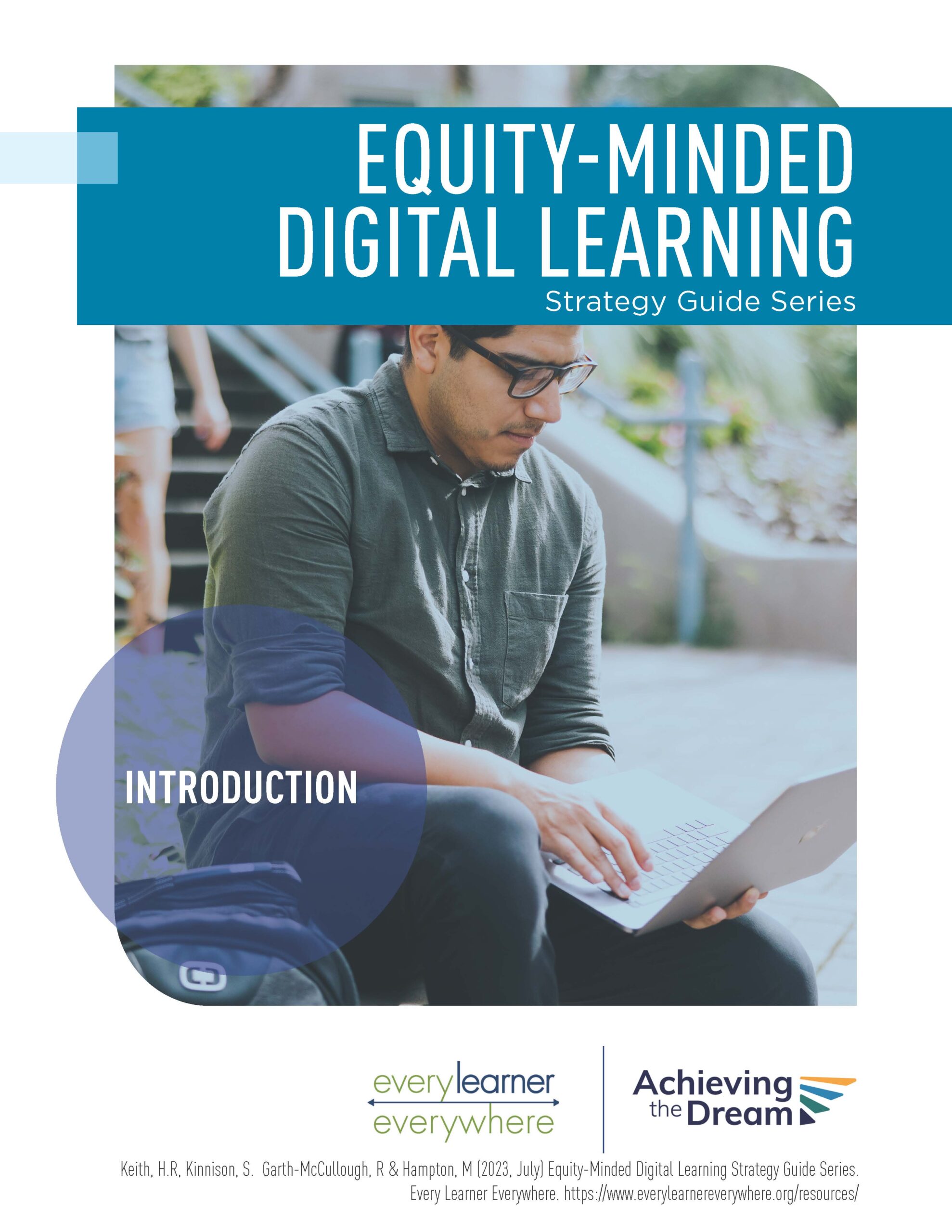
The Equity-Minded Digital Learning Strategy Guides help faculty intentionally and authentically affirm, uplift, and liberate students. As higher education continues to address eliminating inequitable outcomes in teaching and learning, these guides will help institutions embed equity, culturally responsive teaching, social justice education, and open pedagogy through evidence-based teaching practices.
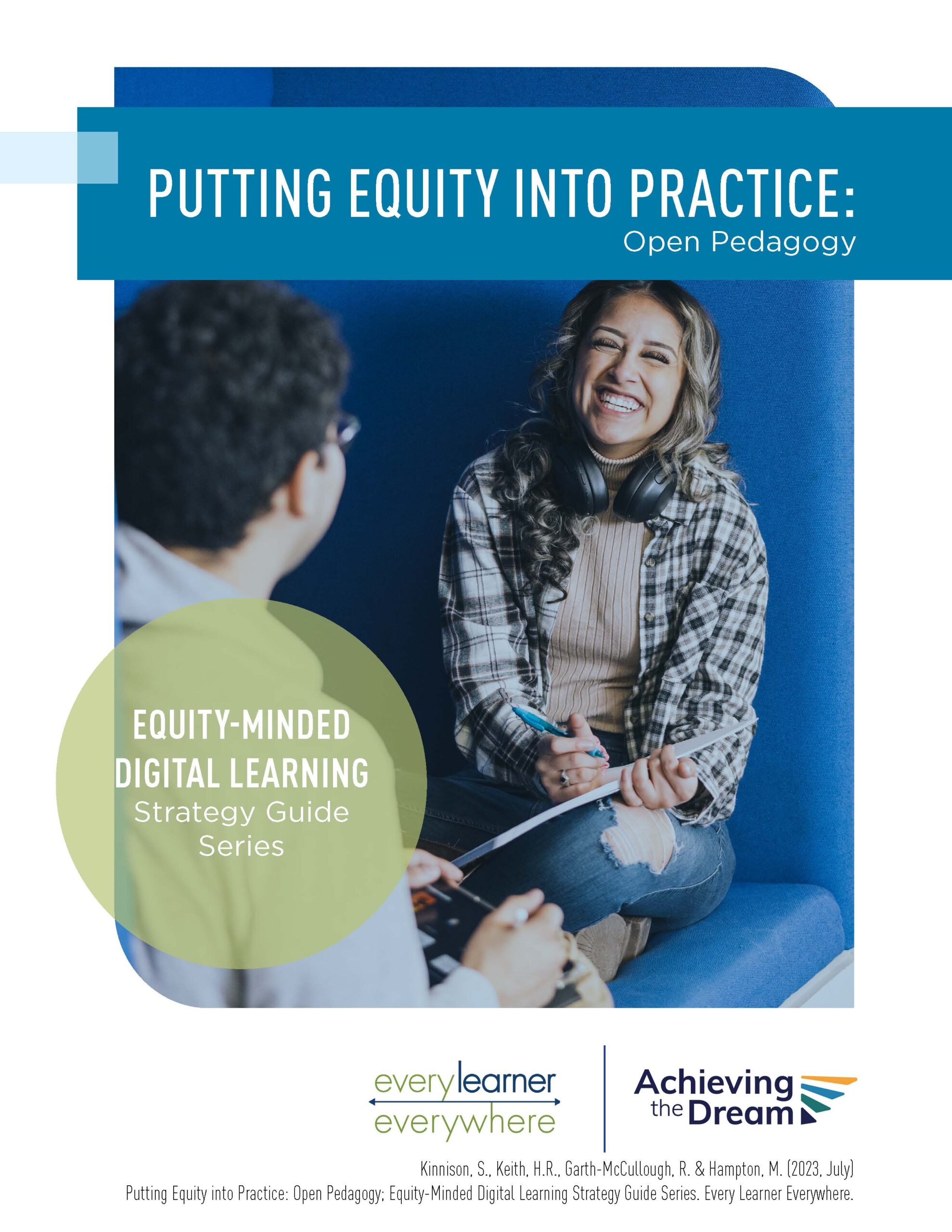
Being able to choose course design, content, assignments, assessments, and instructional approaches based on the context of the learners and the current events of the times allows students to relate all areas of the course to their lives and equitizes their experiences and outcomes. This guide is designed to support faculty with operationalizing open pedagogy through a culturally responsive lens.
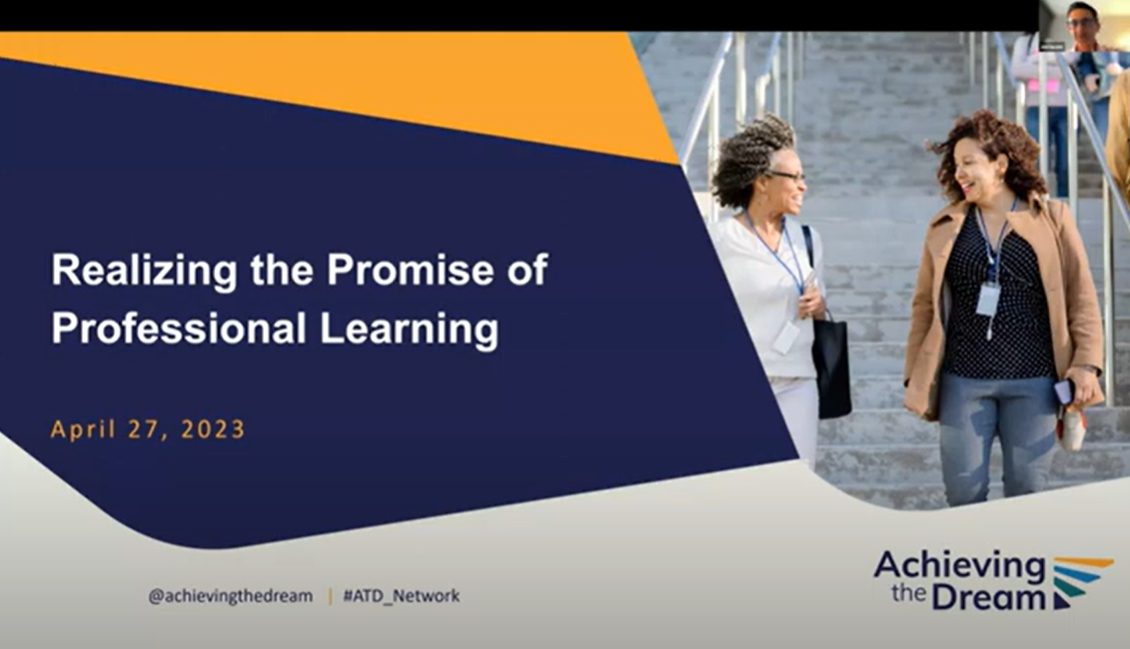
Professional learning, also called Faculty development, in higher education supports student success at the course level.
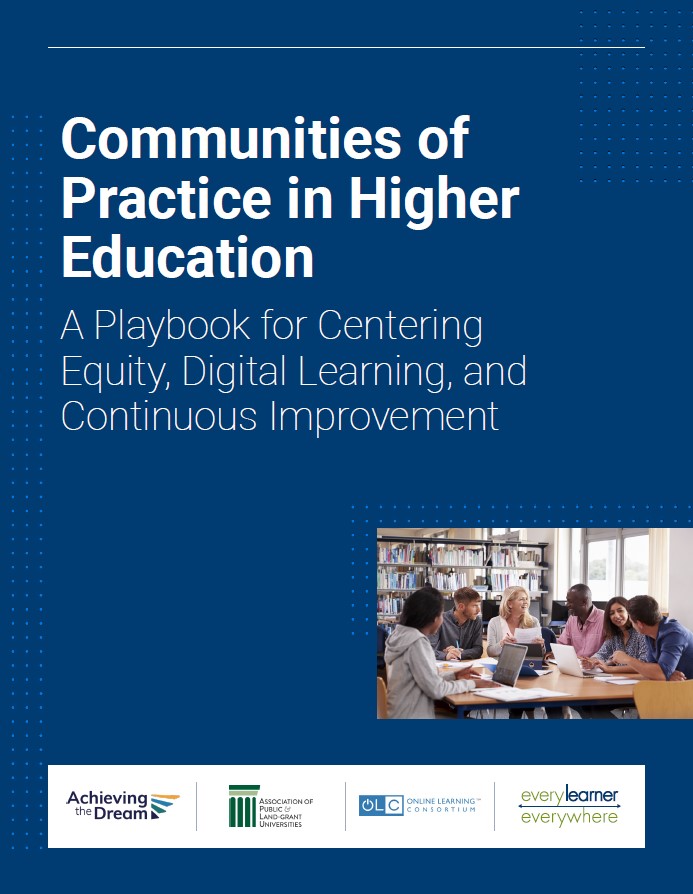
This playbook provides guidance on how to envision, design, facilitate, evaluate, and sustain faculty communities of practice.
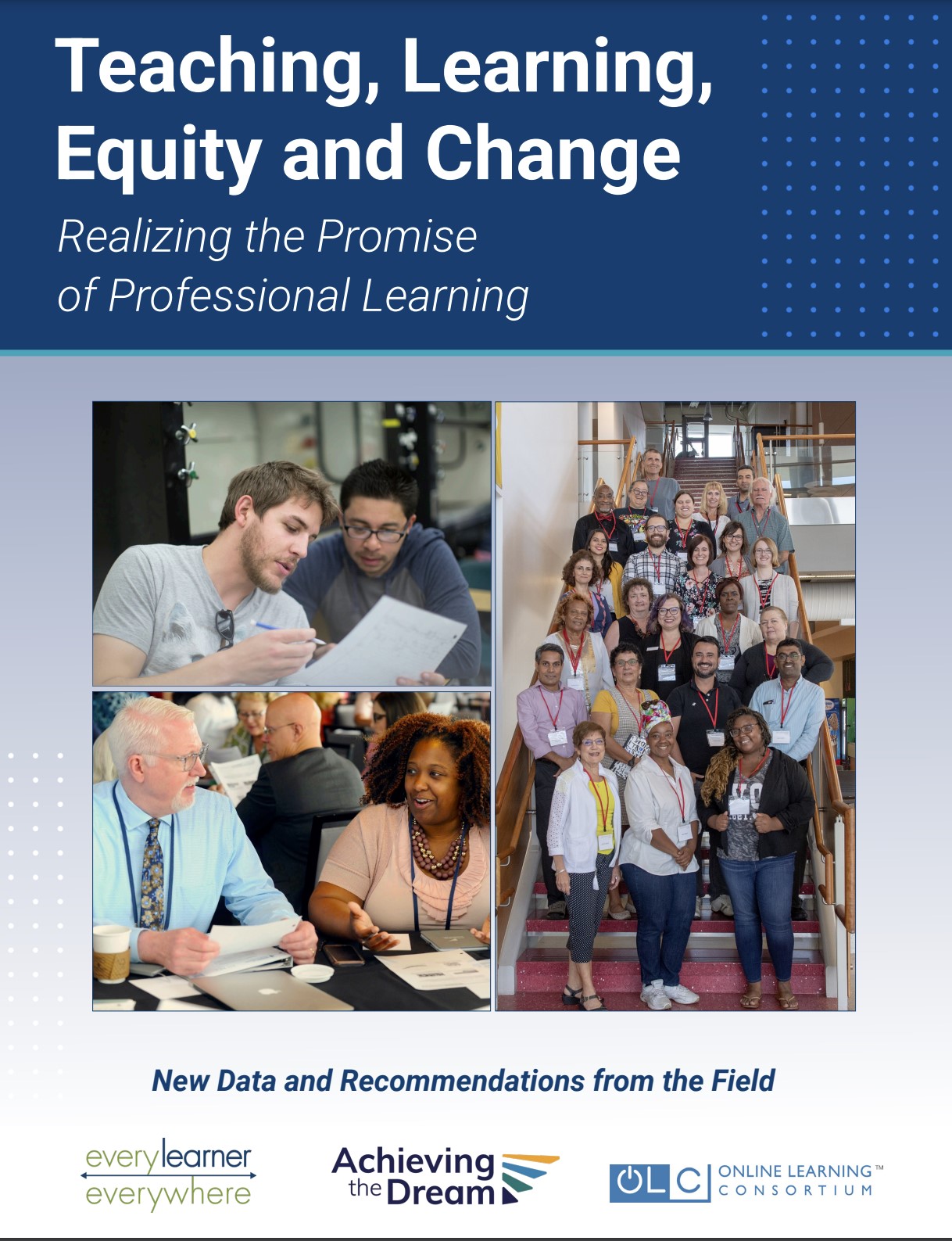
This report informs the strategic action needed to realize the promise of professional learning at our nation’s equity-focused campuses.
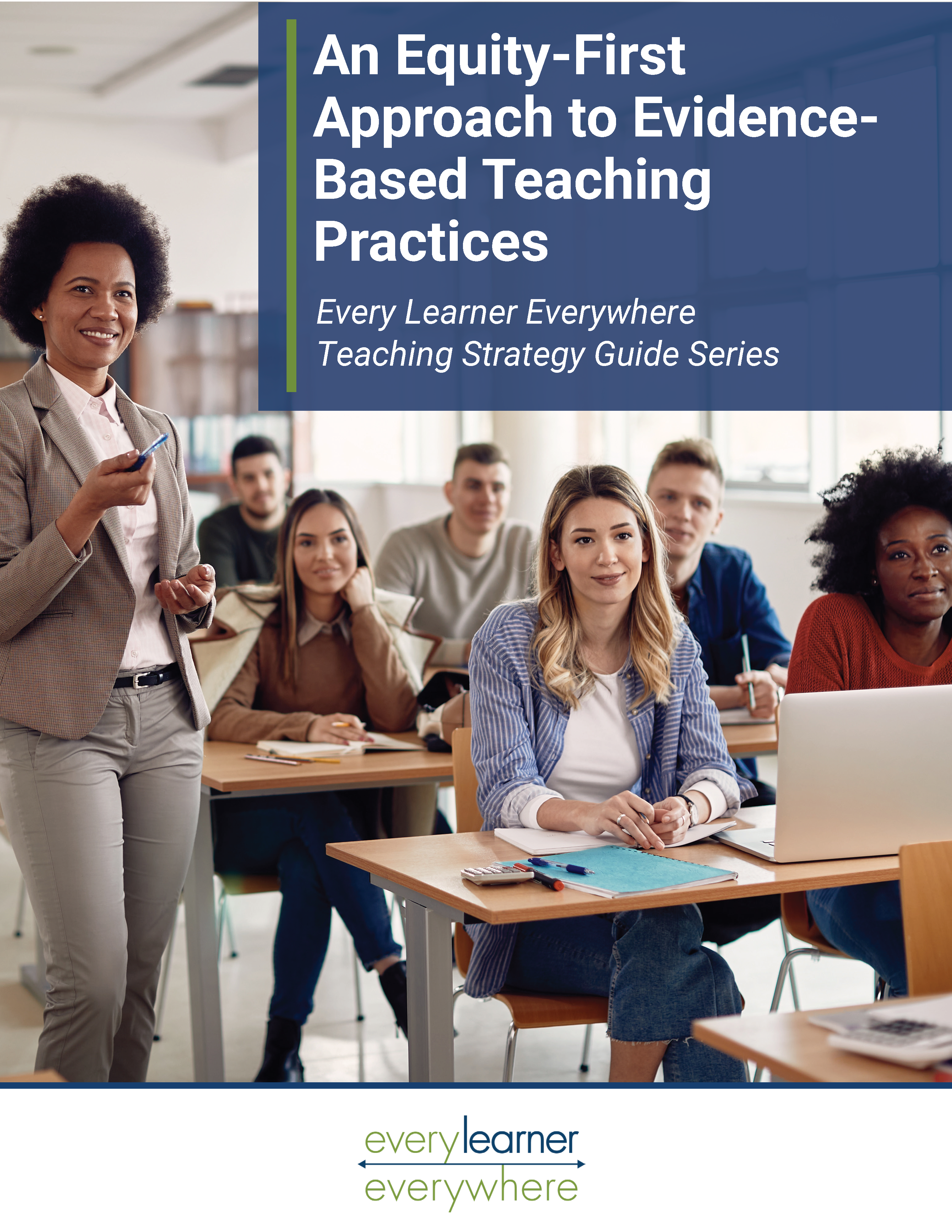
This guide reviews evidence-based teaching practices that benefit minoritized students.
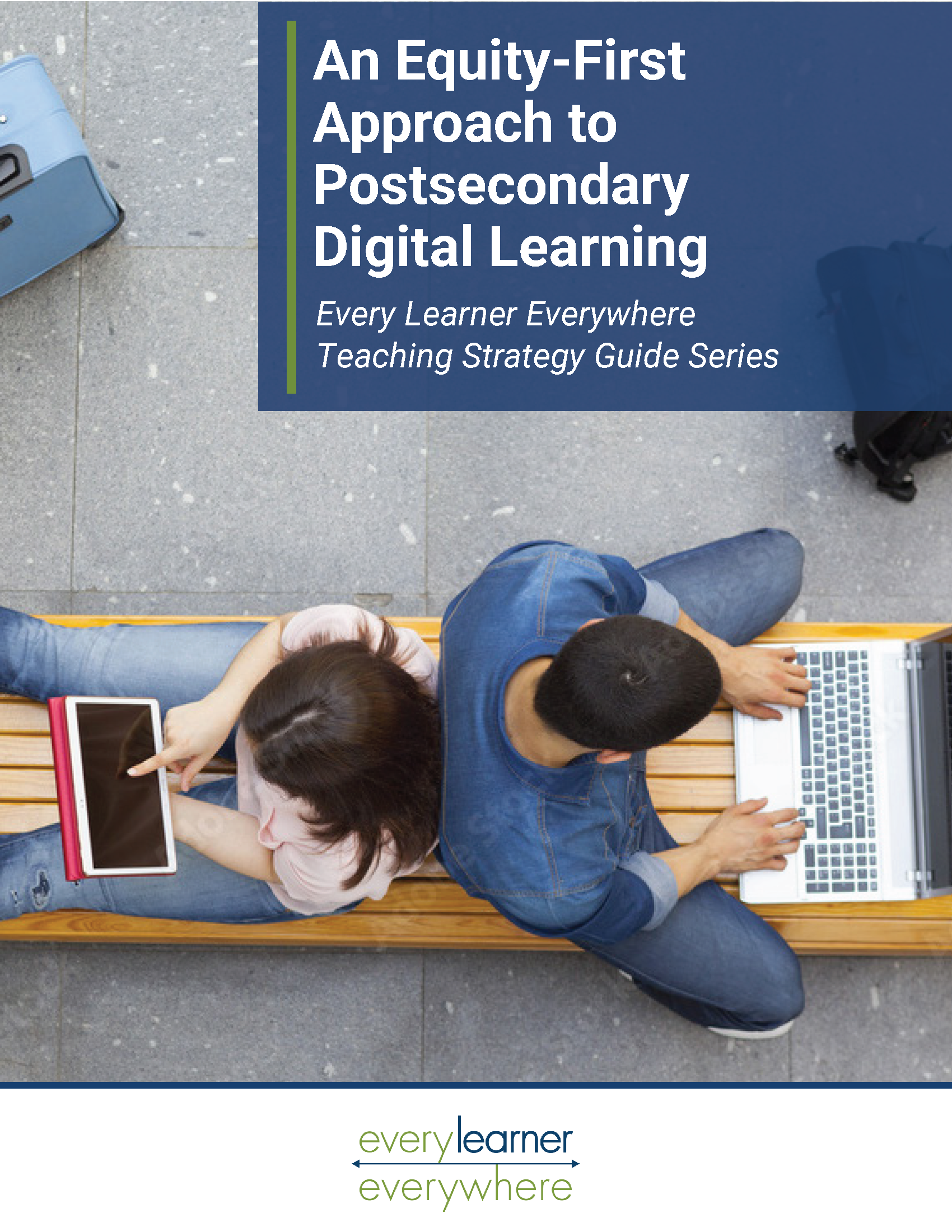
This guide outlines necessary components to adopting and utilizing digital learning tools equitably for postsecondary digital learning.
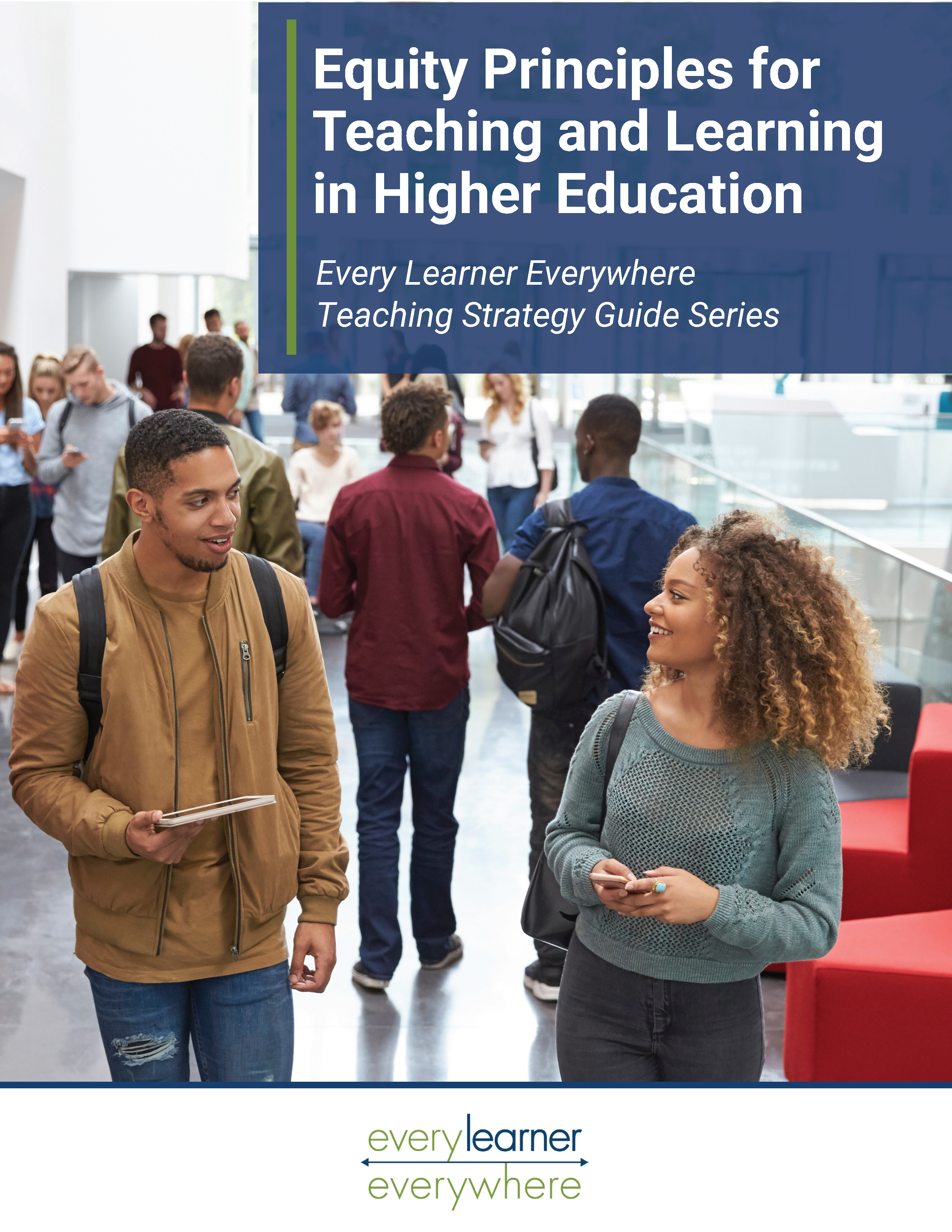
This Every Learner Everywhere strategy guide details our eight equity principles for teaching and learning in higher education.
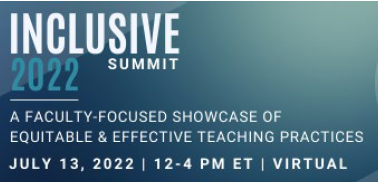
A webinar for faculty support staff and academic leaders who support faculty redesigning courses and leverage educational technologies.
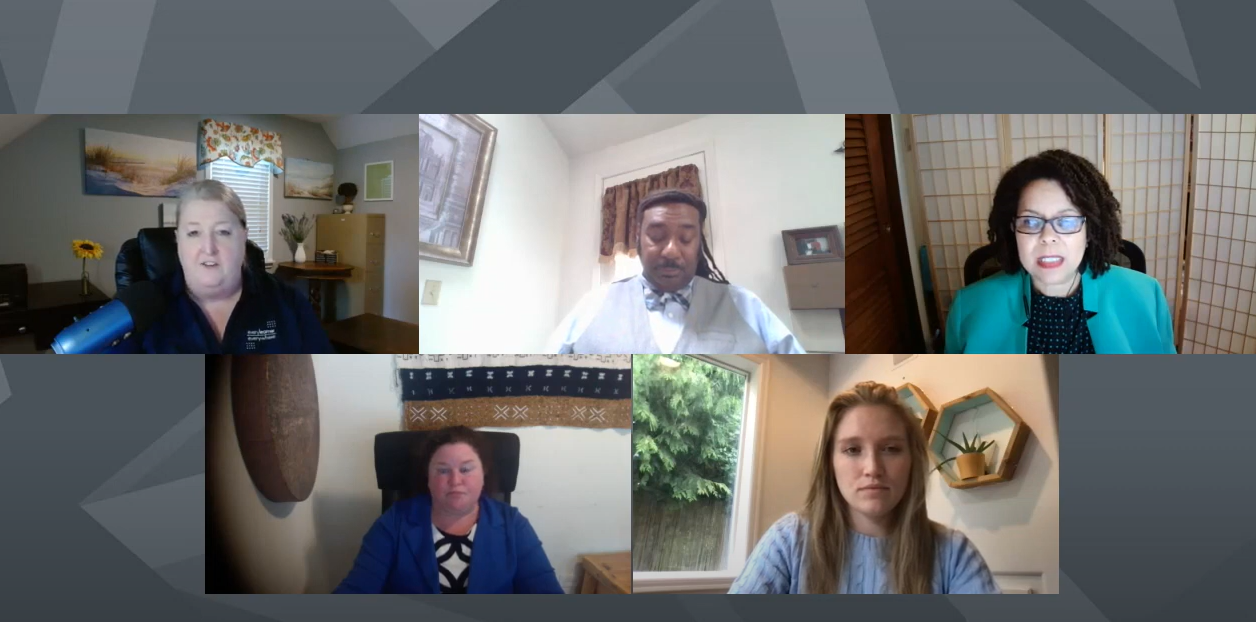
Specialists and practitioners of inclusive teaching answer your questions about strategies and approaches to creating an inclusive learning environment for all students.
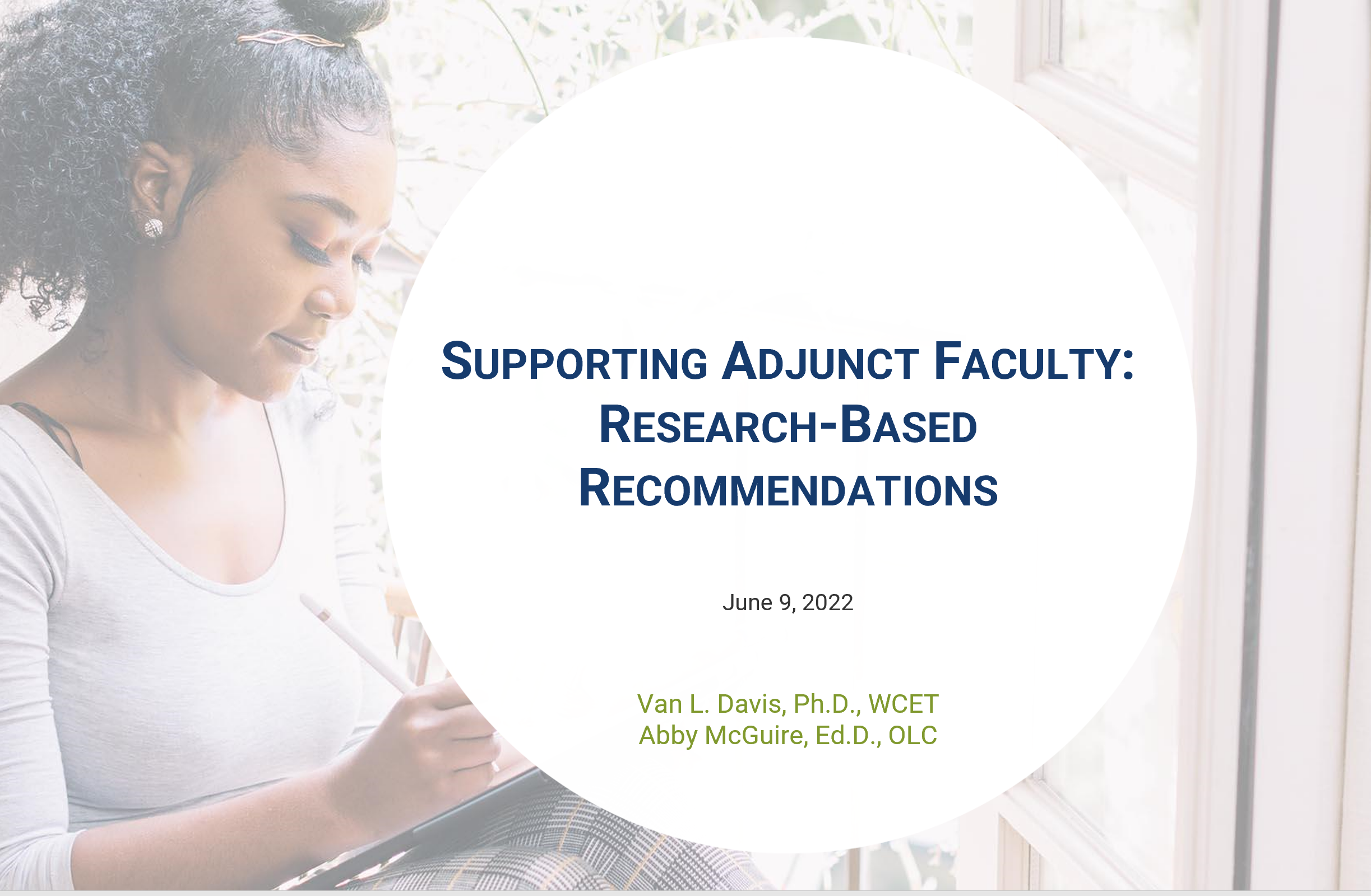
Learn about how institutions can adjust their infrastructure to support online adjunct faculty.
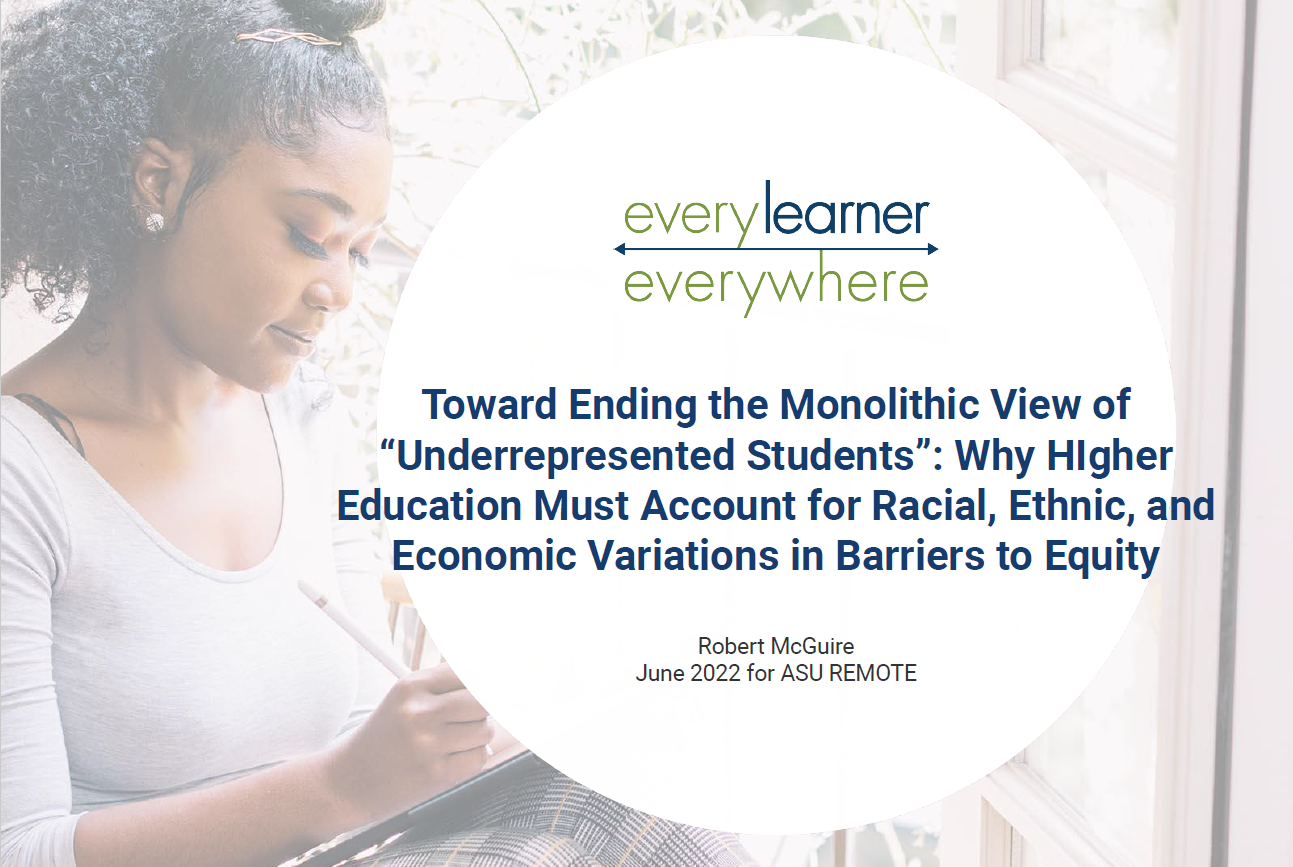
The session summarizes how disaggregating learner data can enable equity-centered education for minoritized, poverty-affected, and first-generation students.
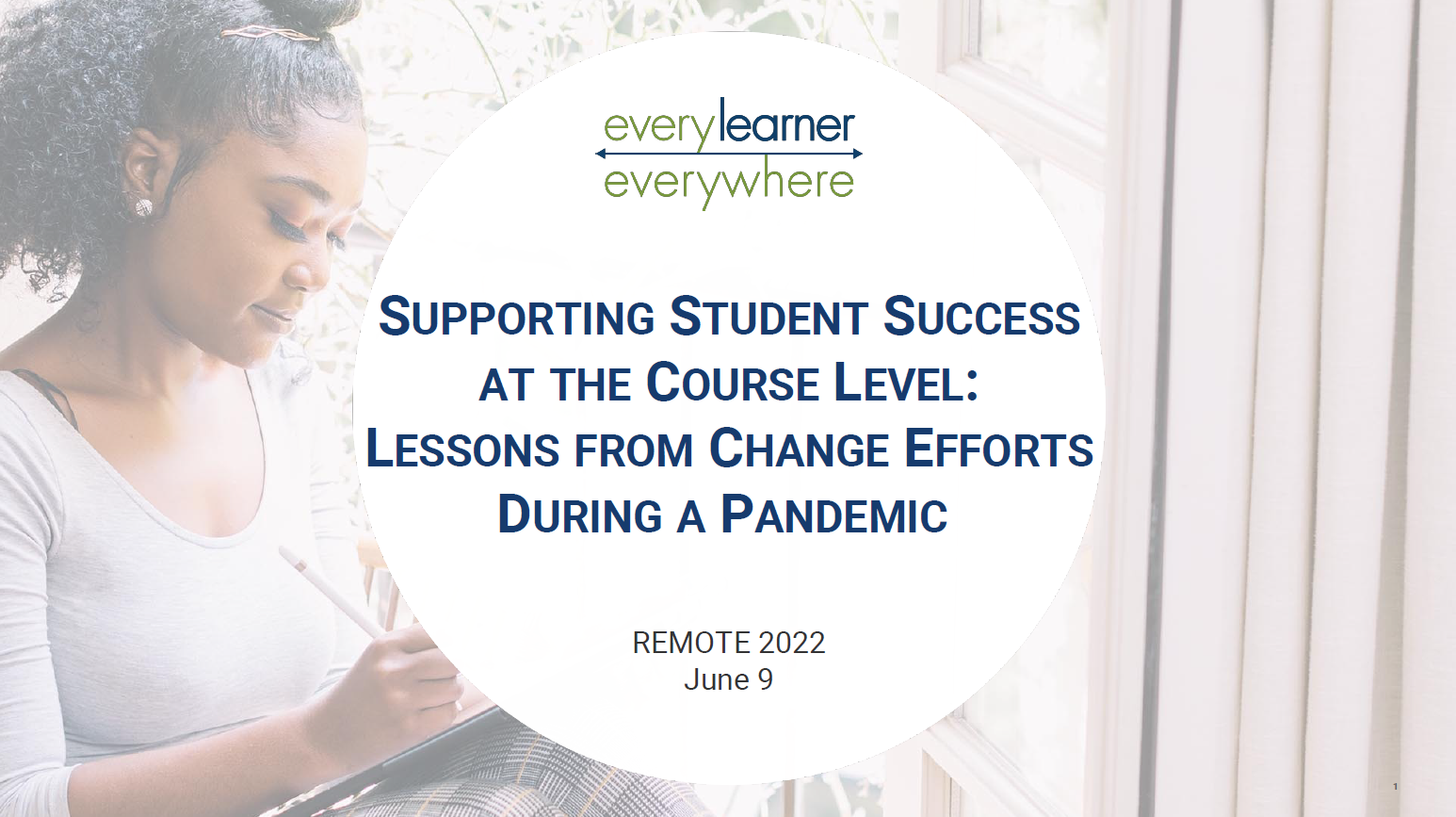
Learn how digital learning tools can give both faculty and students an edge in a time of academic upheaval.
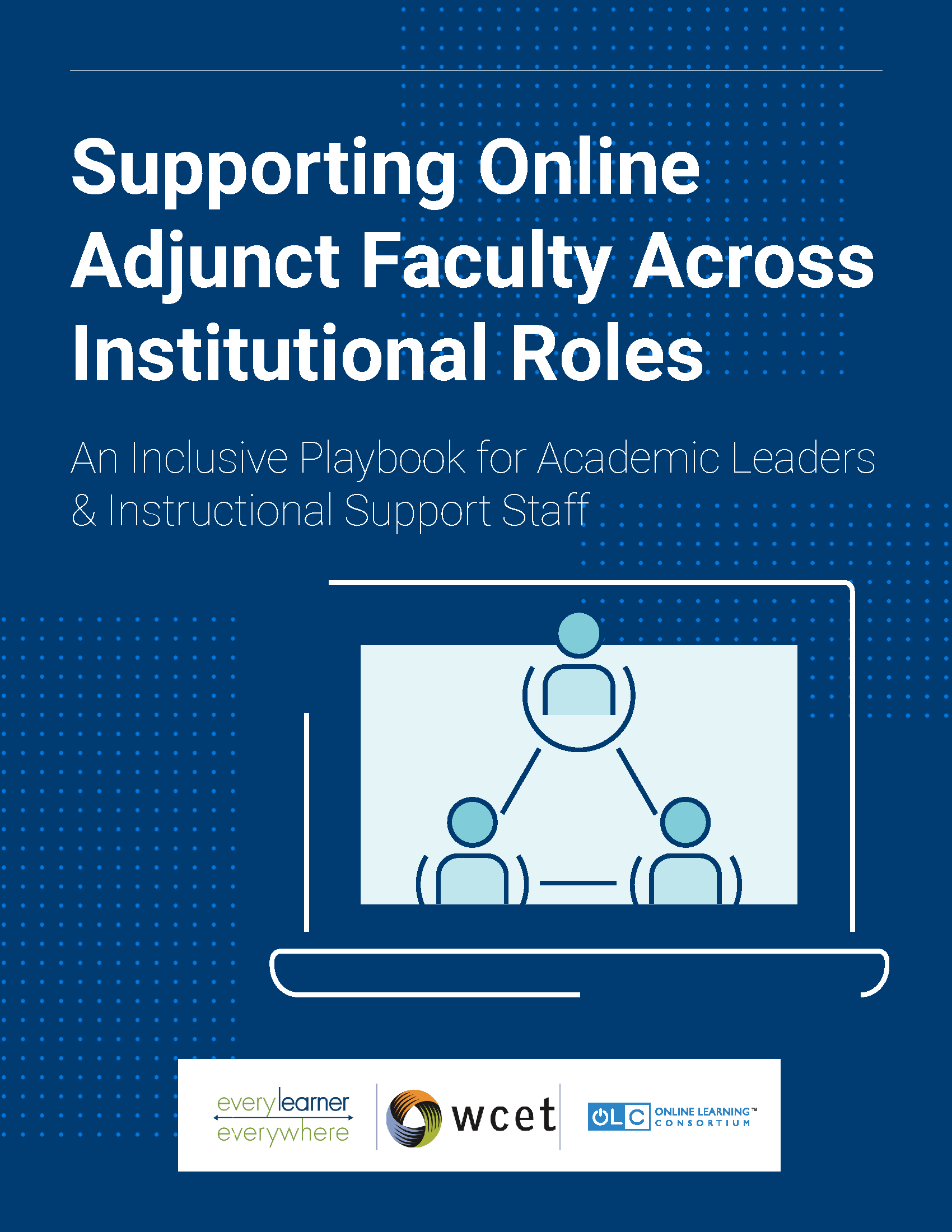
This playbook presents six concrete strategies for academic leaders, college-level leaders, and instructional design staff to adopt now to better support their online adjunct faculty and the community of students and learners in their classrooms.
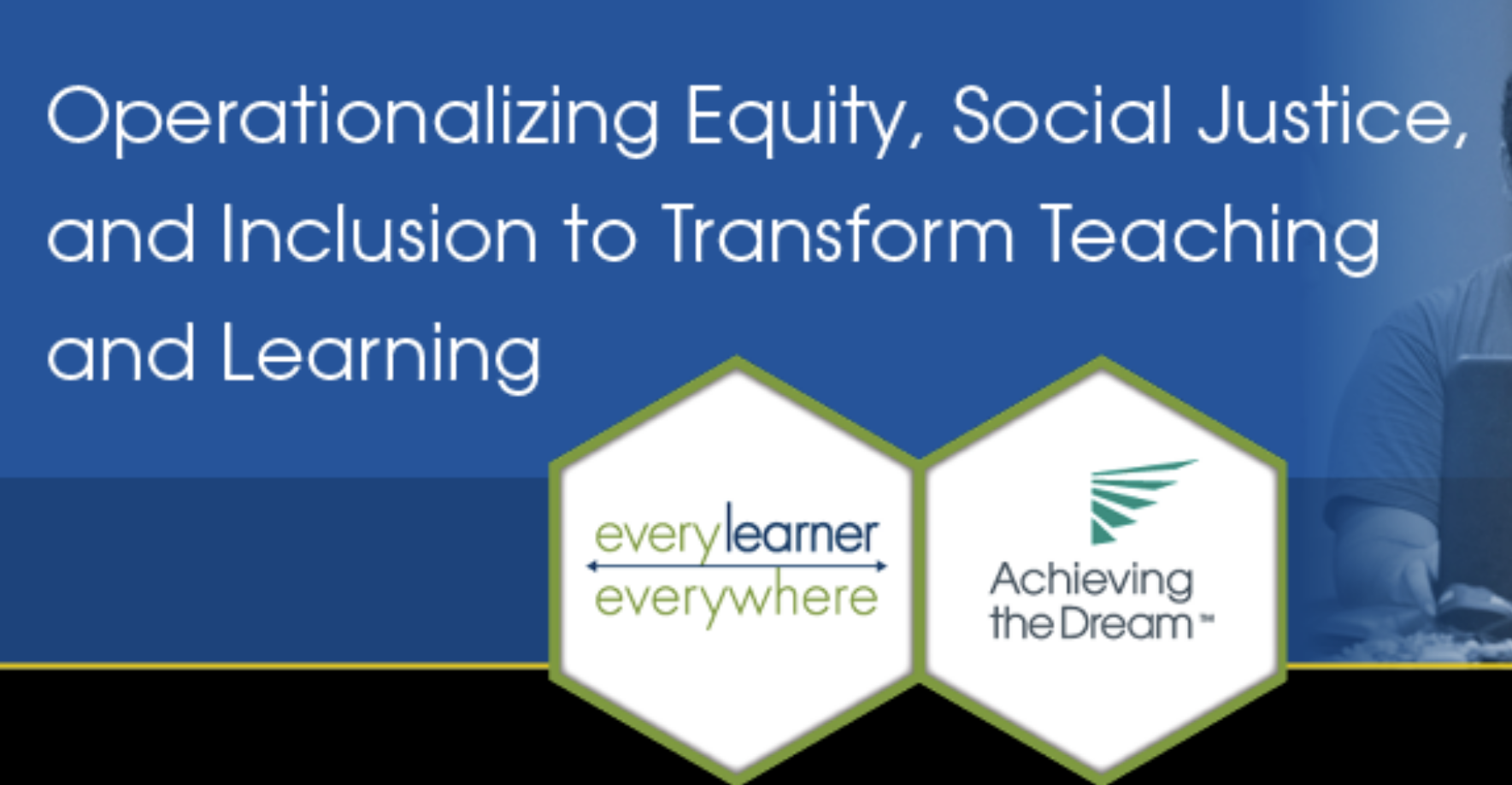
In this webinar, participants engage in dialogue and discourse with panelists about co-creating environments that support and humanize students’ academic experiences while affirming their strengths and potential in the classroom.
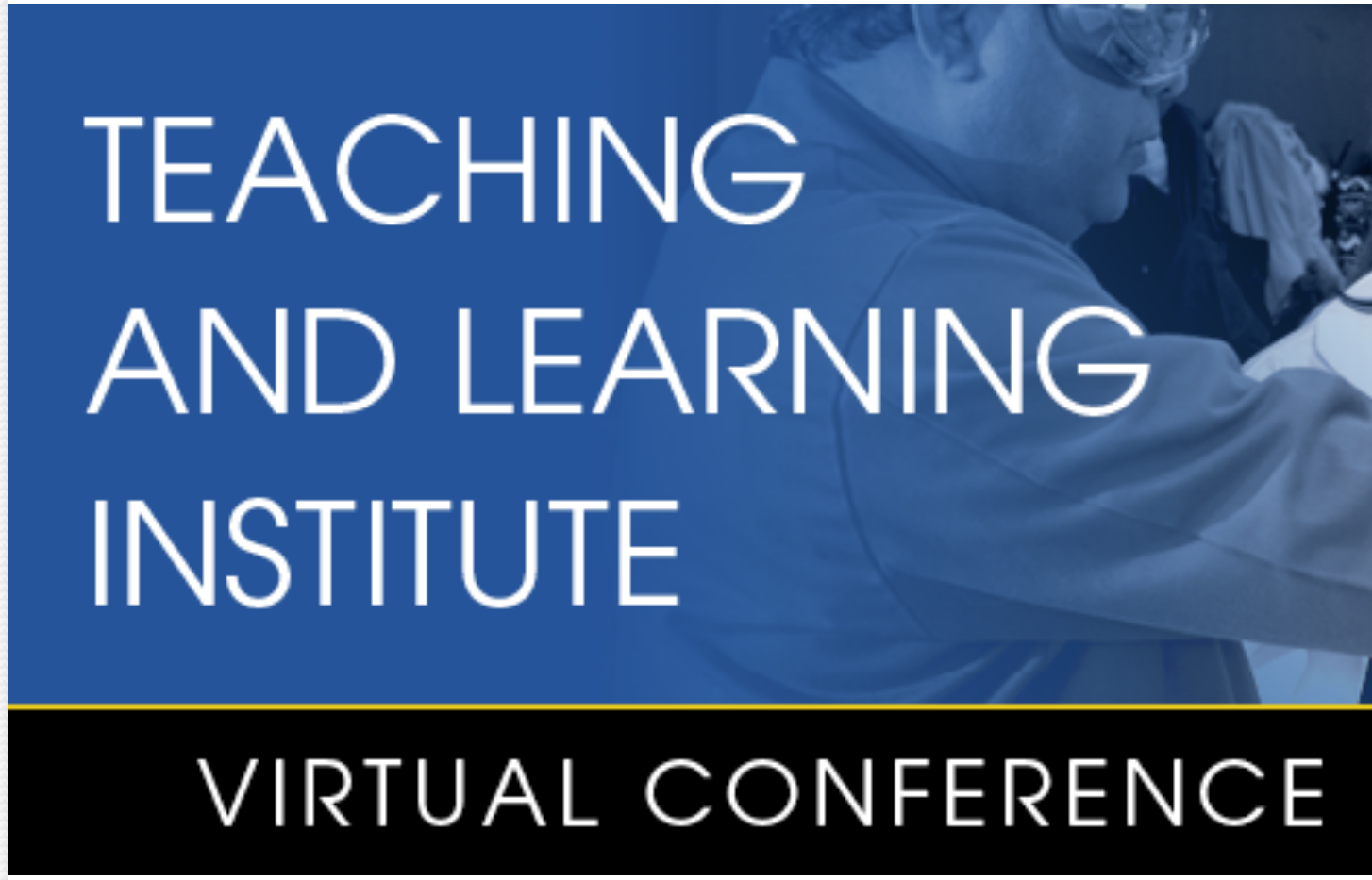
Faculty development leaders share their strategies for shifting the framework in ways that advance equitable student learning experiences.

Three students who are ATD fellows share their first-hand accounts of culturally responsive teaching practices and the impact on their learning experiences.

Presenters share their experiences in developing course curriculum, assignments, and content that validate, affirm, and embrace the diverse perspectives, lived experiences and cultures of the student they serve.

This workshop provides examples of successful innovative and digital assessment approaches that center students and allow for authentic and culturally responsive measurement of student learning.
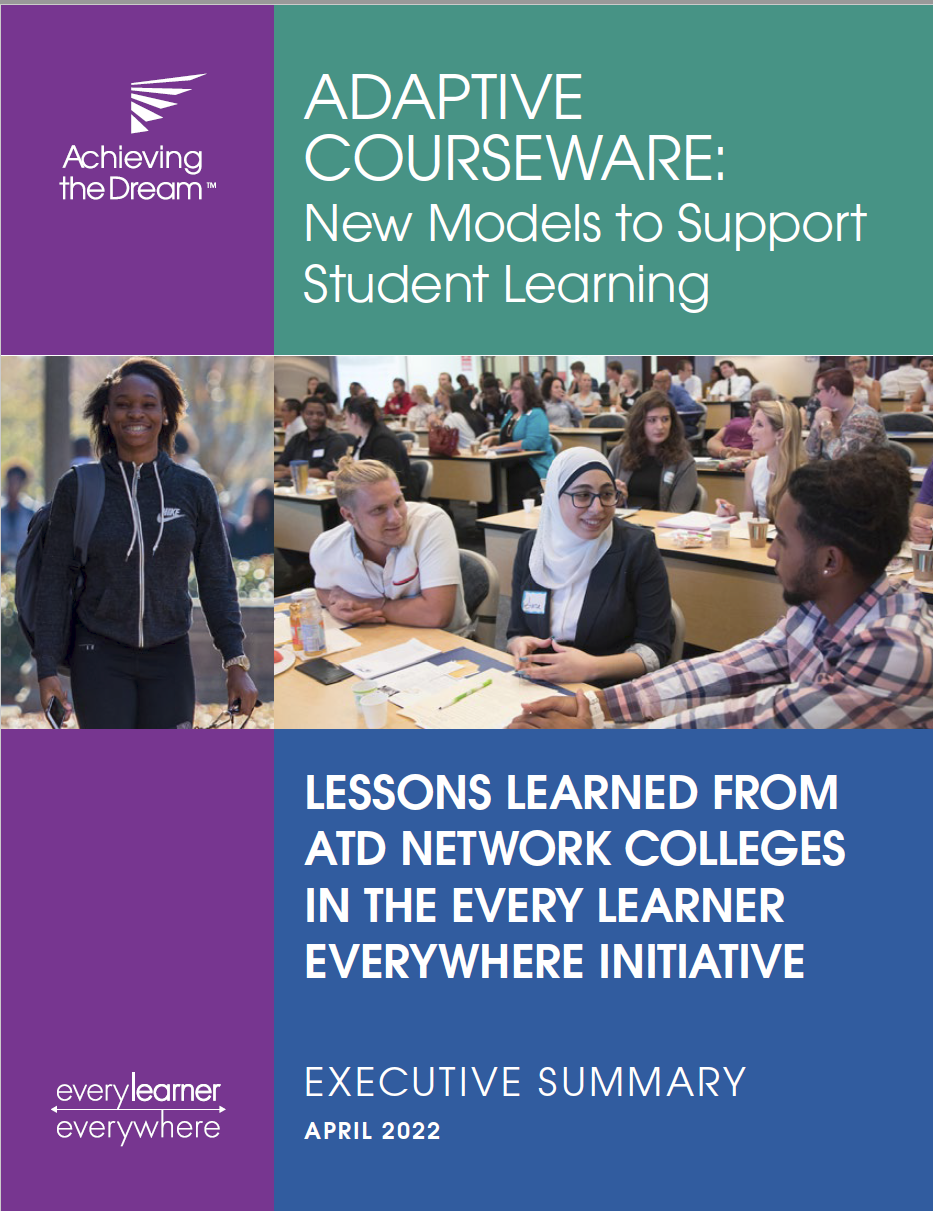
This report is an executive summary of the findingins following the implementation of digital learning tools at seven community colleges.
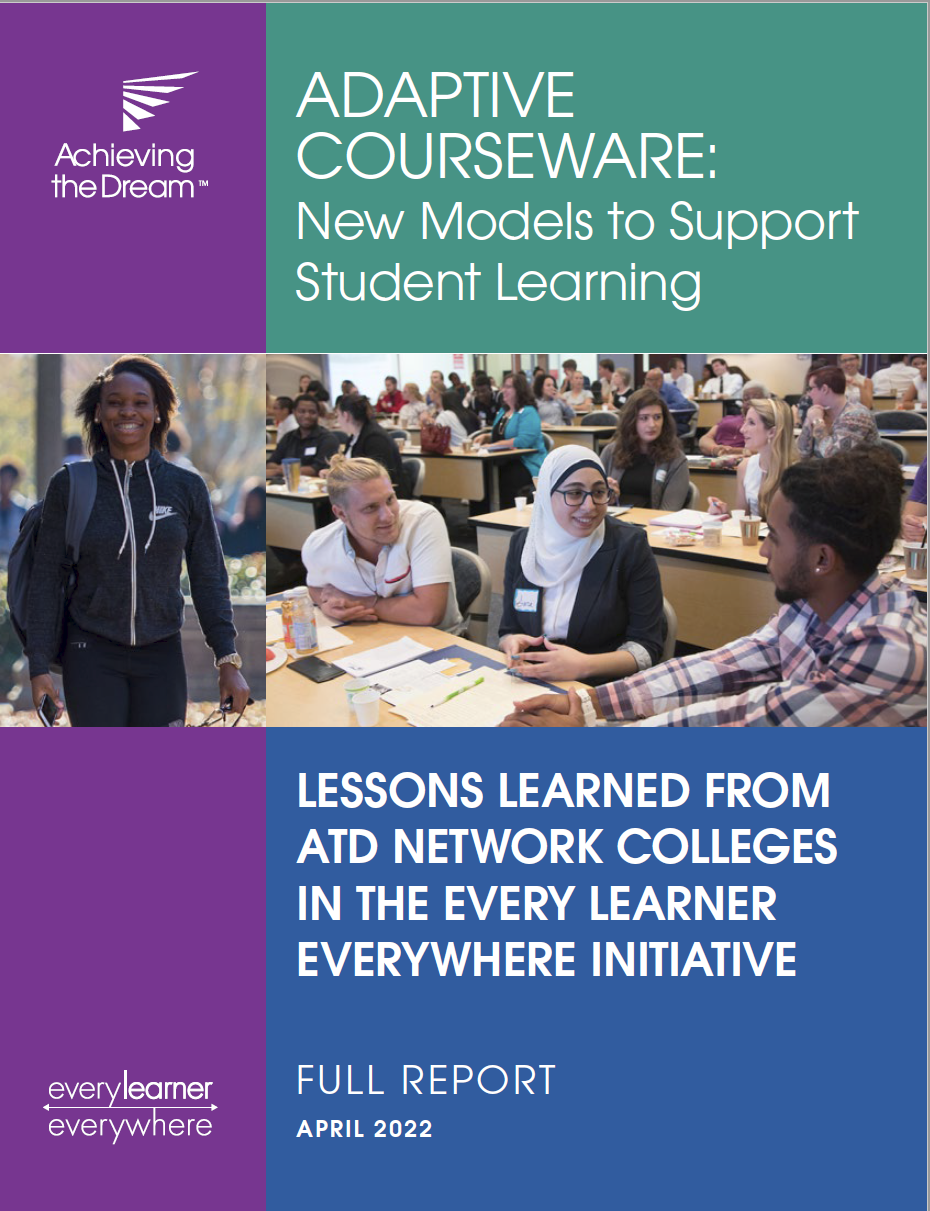
Full report of digital learning adoption in seven community colleges in the ATD network.
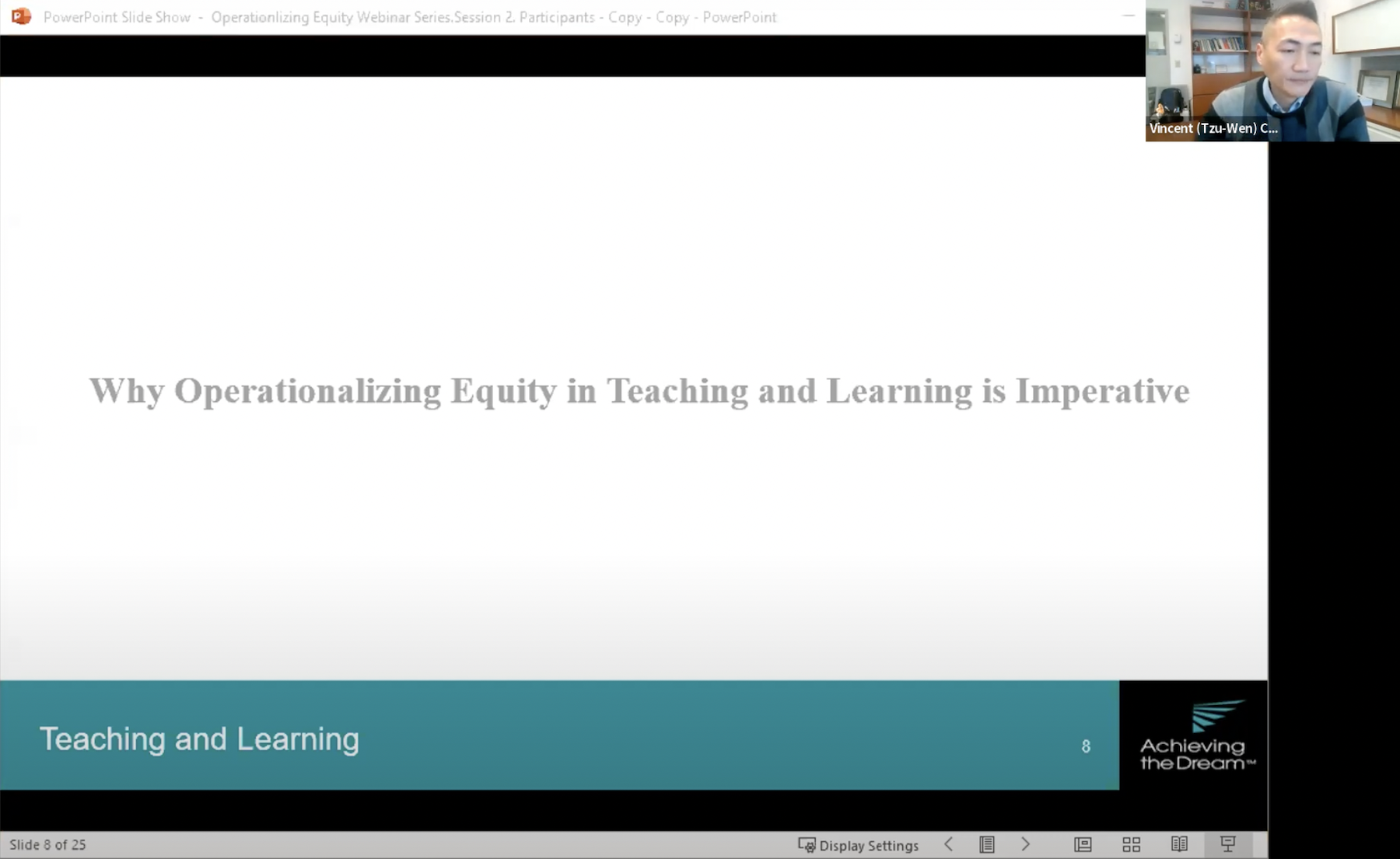
Panelists share tenets to purposefully embed equity, social justice, and inclusion into innovative teaching and learning in face-to-face and virtual spaces.
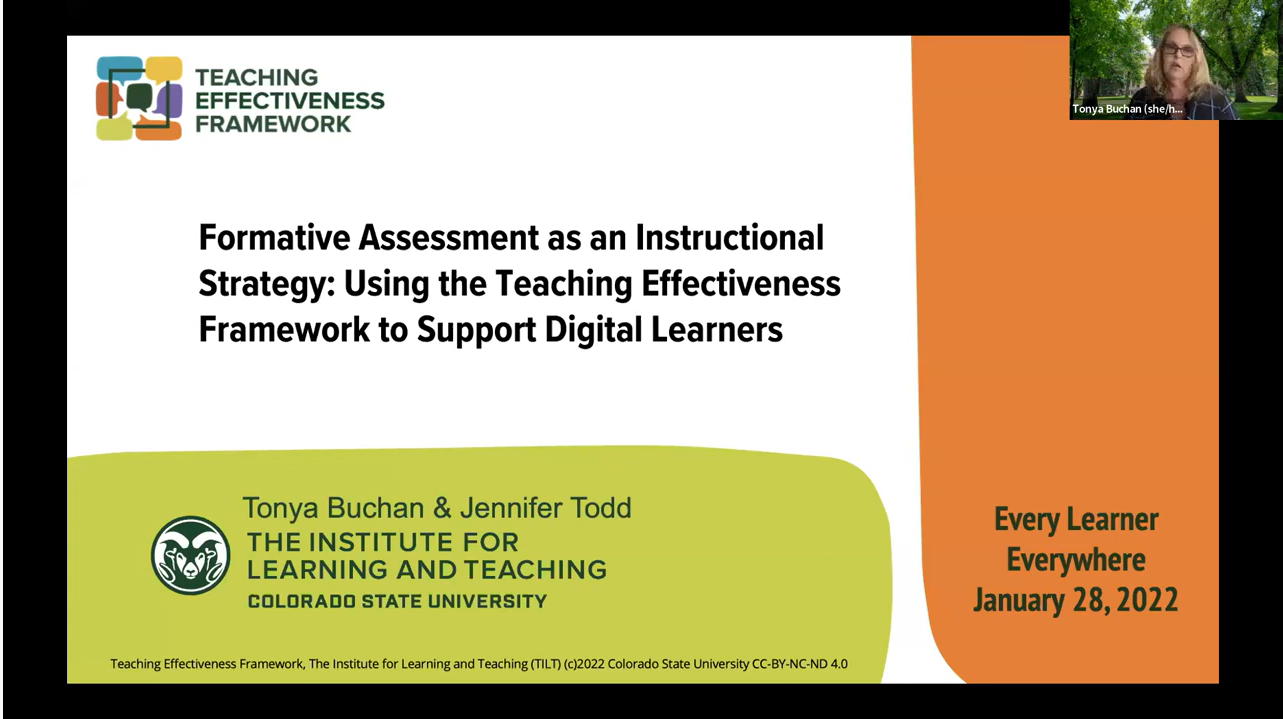
Presenters discuss the intersection of the Feedback & Assessment and Instructional Strategies domains of the CSU Teaching Effectiveness Framework.
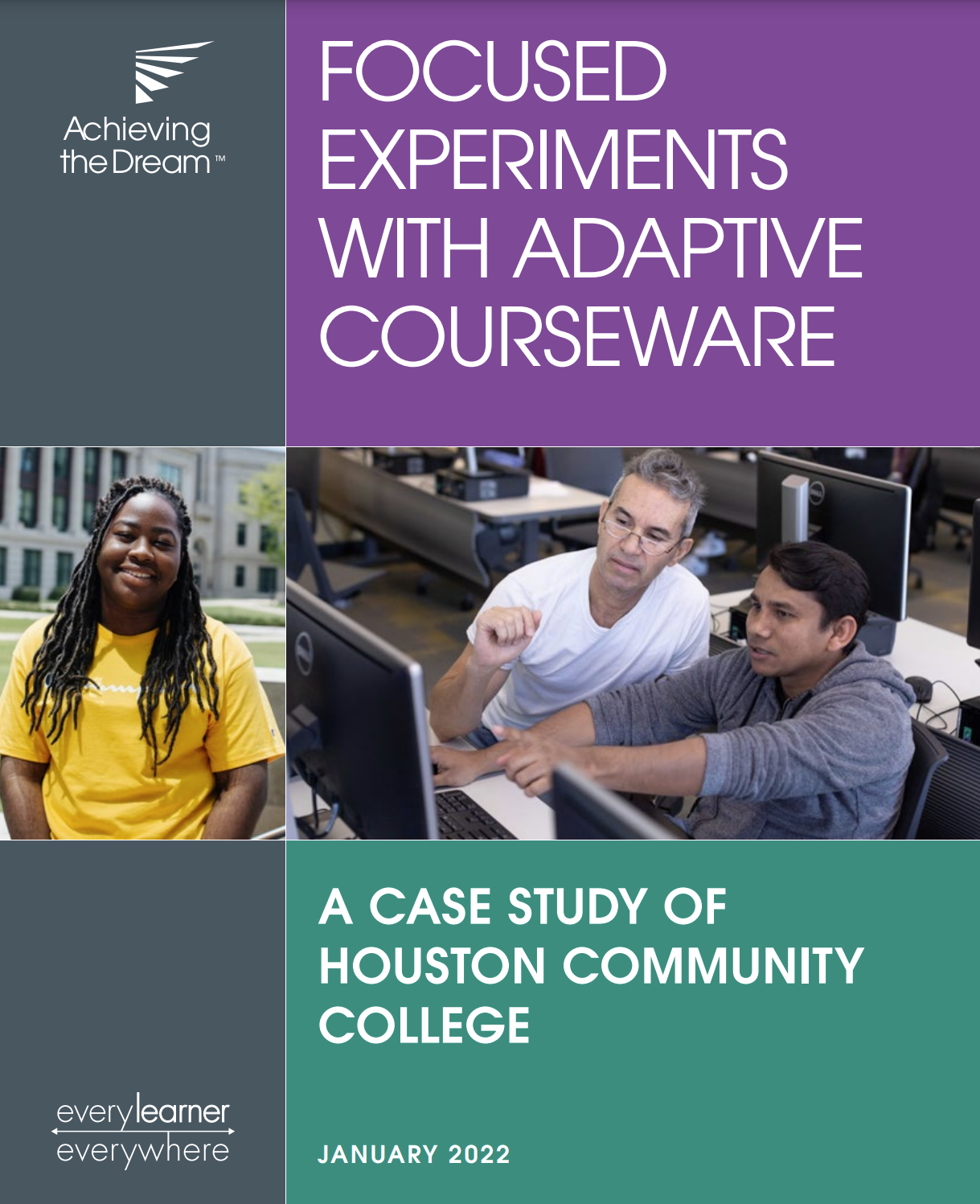
Faculty at HCC led efforts to implement adaptive courseware in introductory mathematics and economics courses.
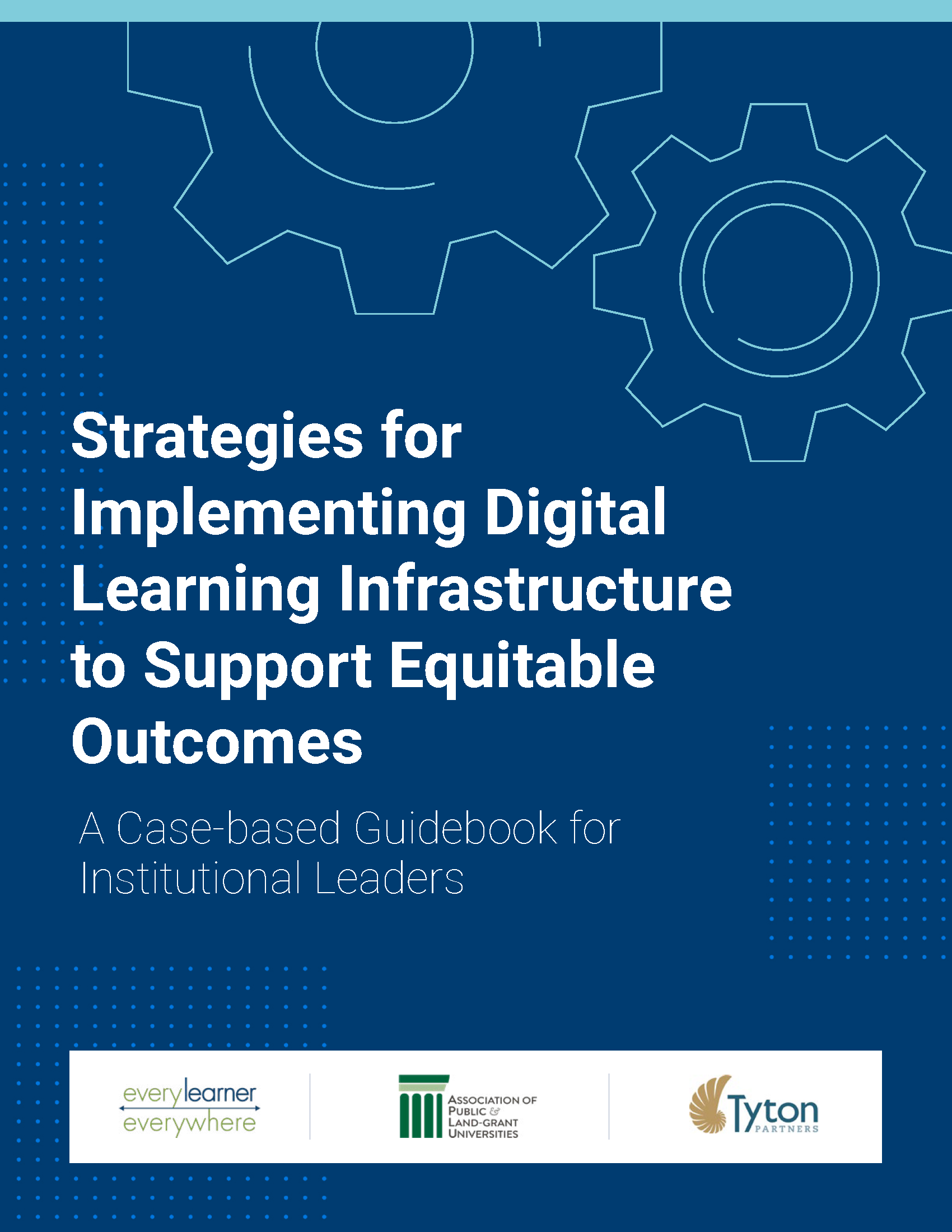
This report focuses on building the core infrastructure needed for high-quality digital learning and is designed primarily for a mid- to senior-level academic administrators including department chairs, leaders of centers of teaching and learning, technology leaders, and academic leadership.
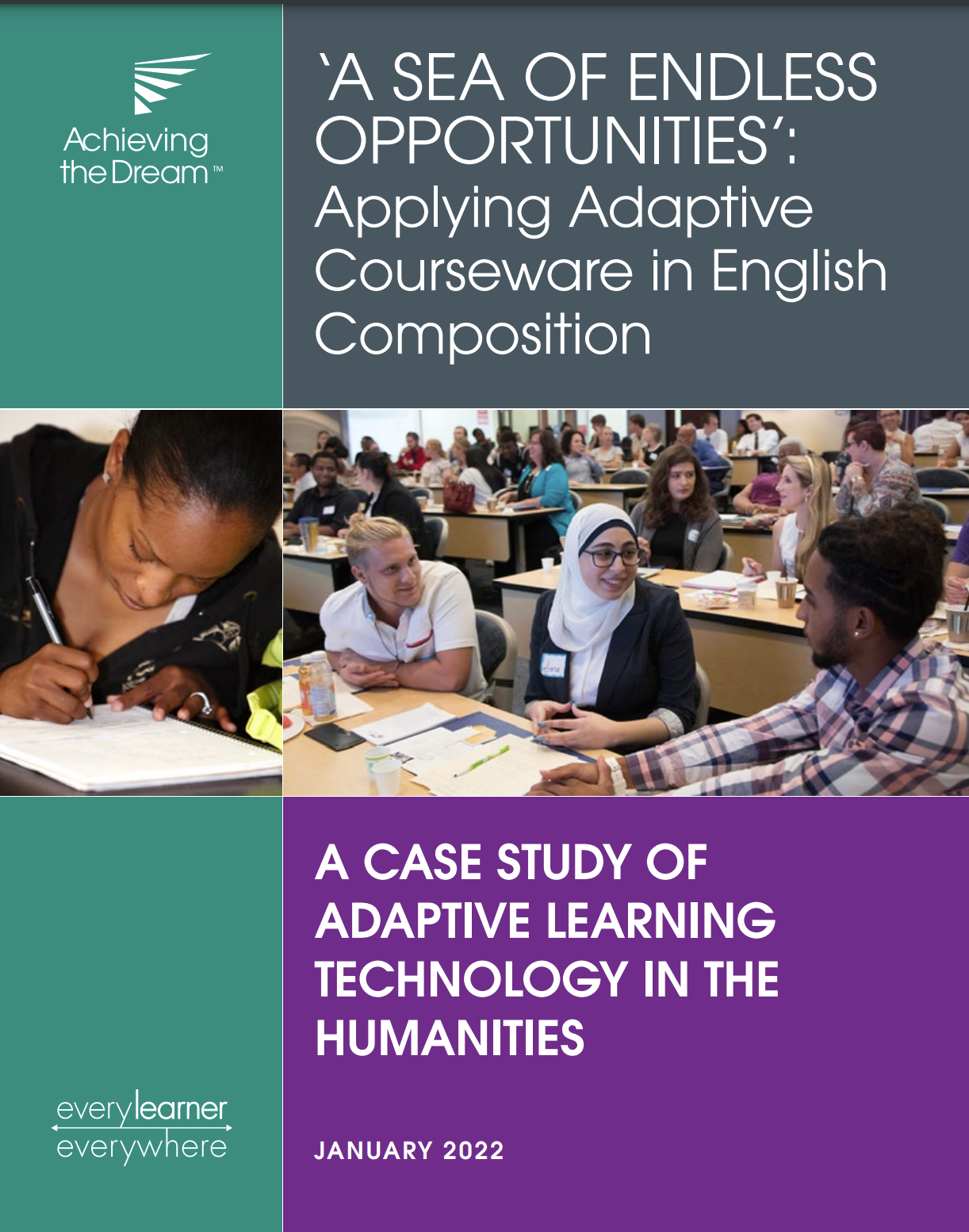
A case study on applying adaptive learning technology in English Composition to help more students persist and succeed.

A case study on integrating adaptive tools into course redesign provides instructional design support and integrated adaptive technology.
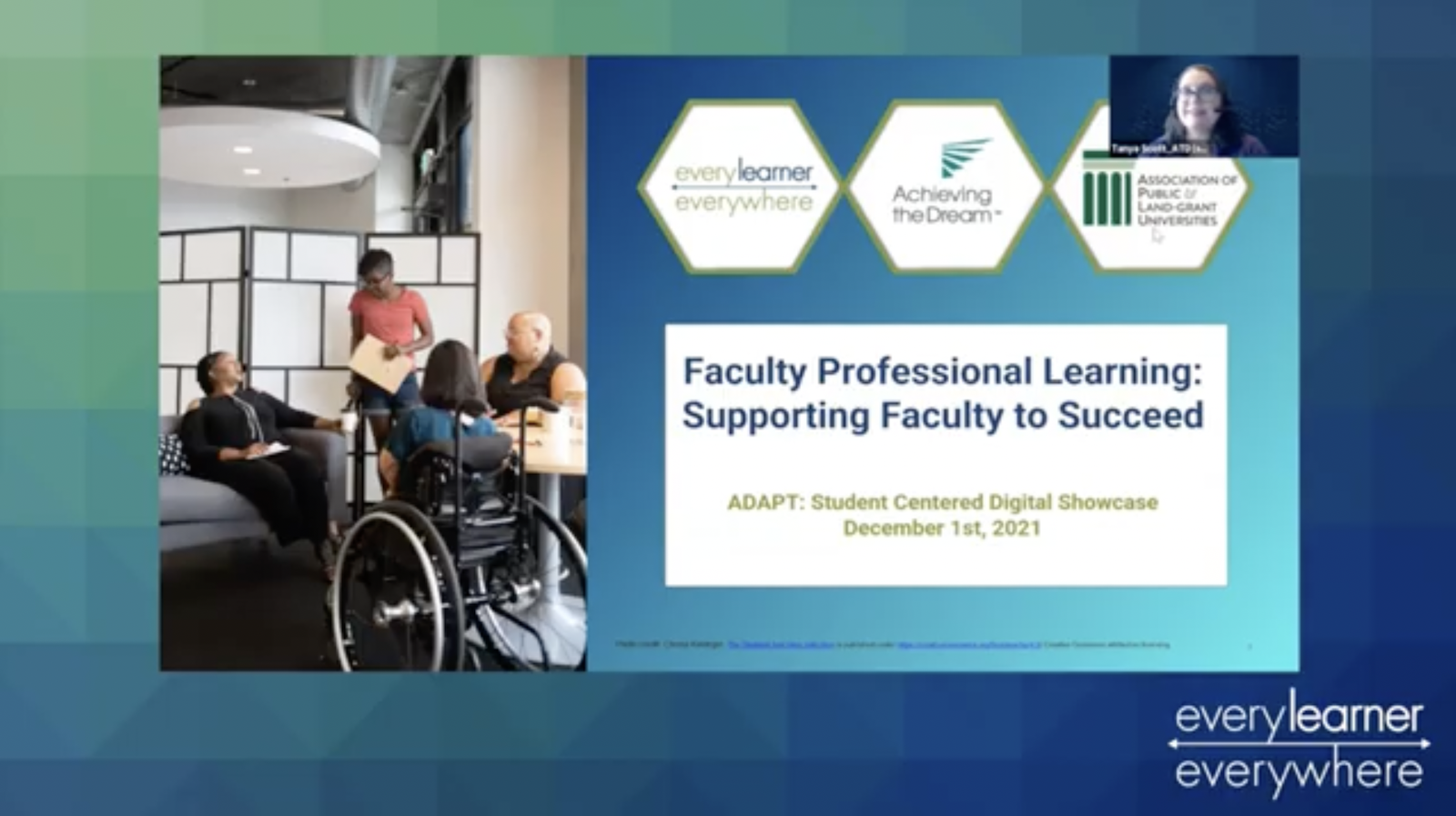
This faculty professional learning session helps faculty and educators to identify and engage a strategic set of stakeholders to support a strong implementation plan for adaptive courseware.
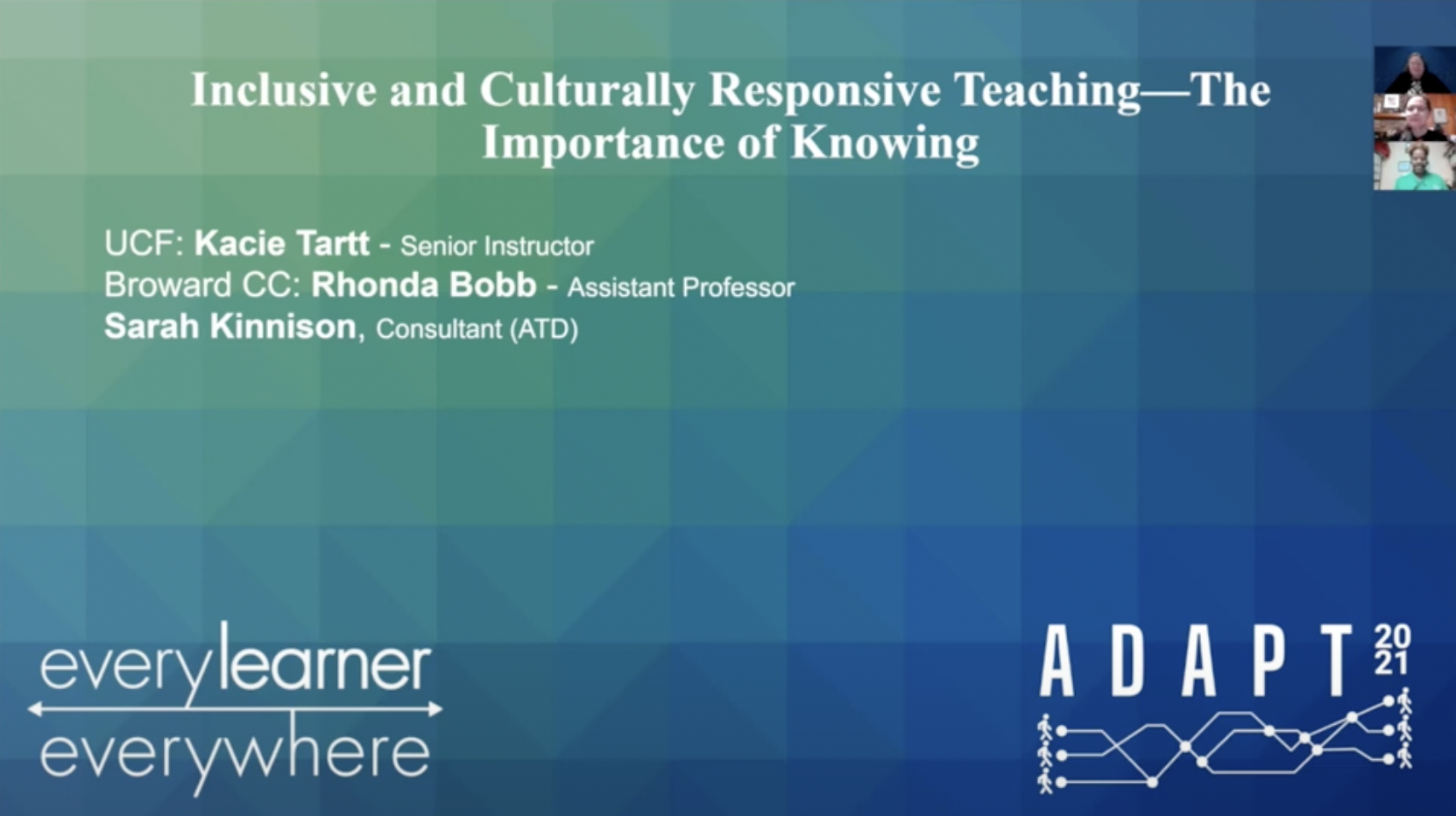
Faculty describe inclusive teaching strategies, alongside digital tools, to help connect the content to the student in meaningful and lasting ways.
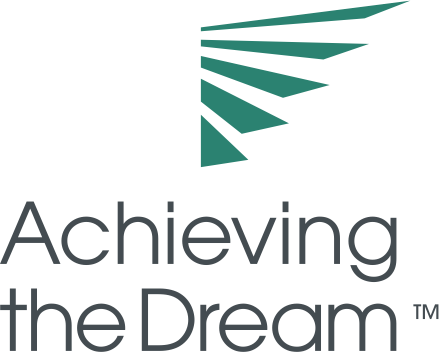
Instructional designers, technologists, and faculty developers practice consultation approaches by exploring a case study and applying course design strategies.

Align course instruction with adaptive content, analyze data points on an adaptive courseware dashboard and effectively onboard students.

Explore how adaptive learning tools and practices can transform math courses to increase student success.
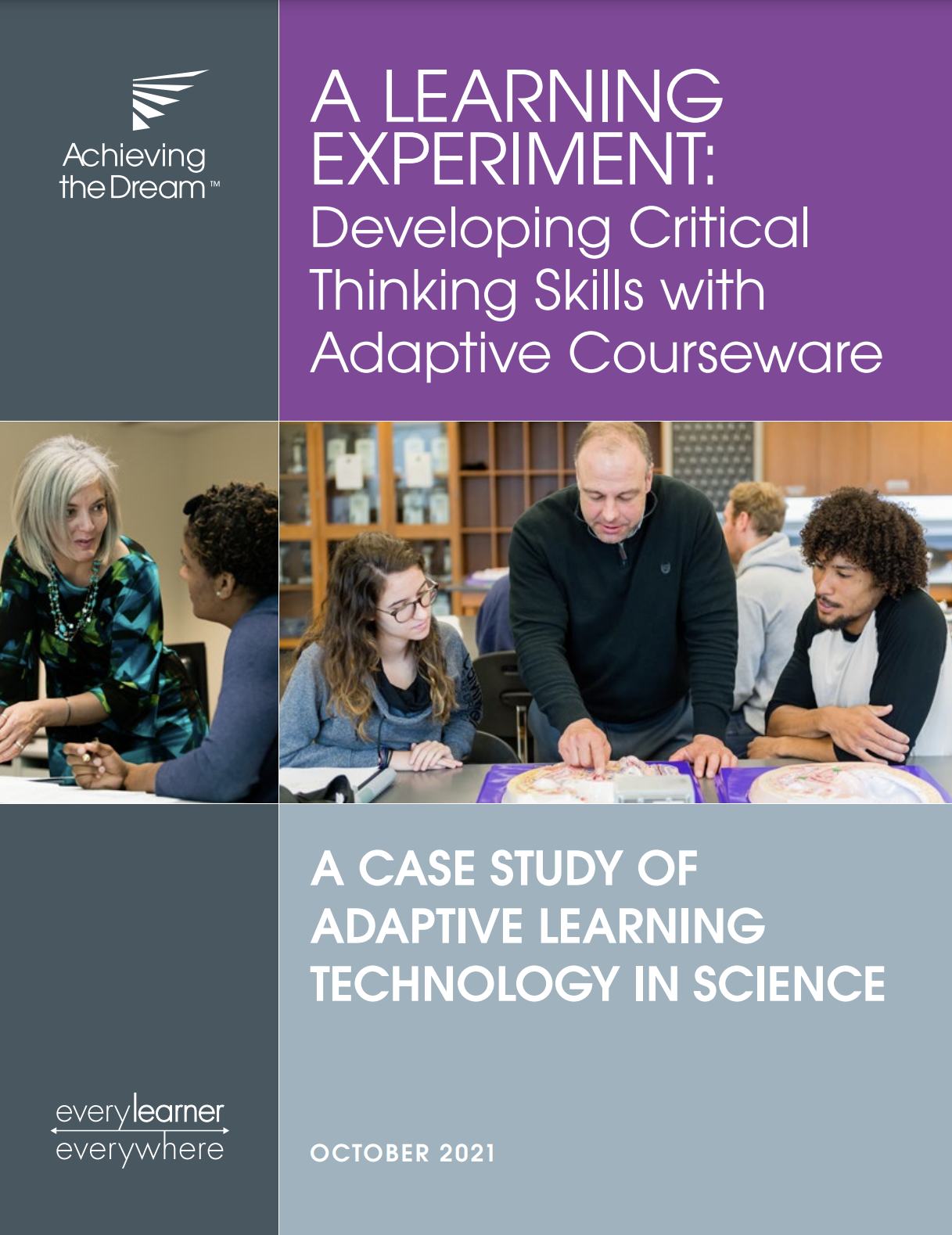
The study suggests that adaptive learning technology helped students who need support with prerequisite concepts, provided tools to help guide students through complex, multistep processes, gave faculty insights into concepts students were struggling with, and reduced the cost of course materials.
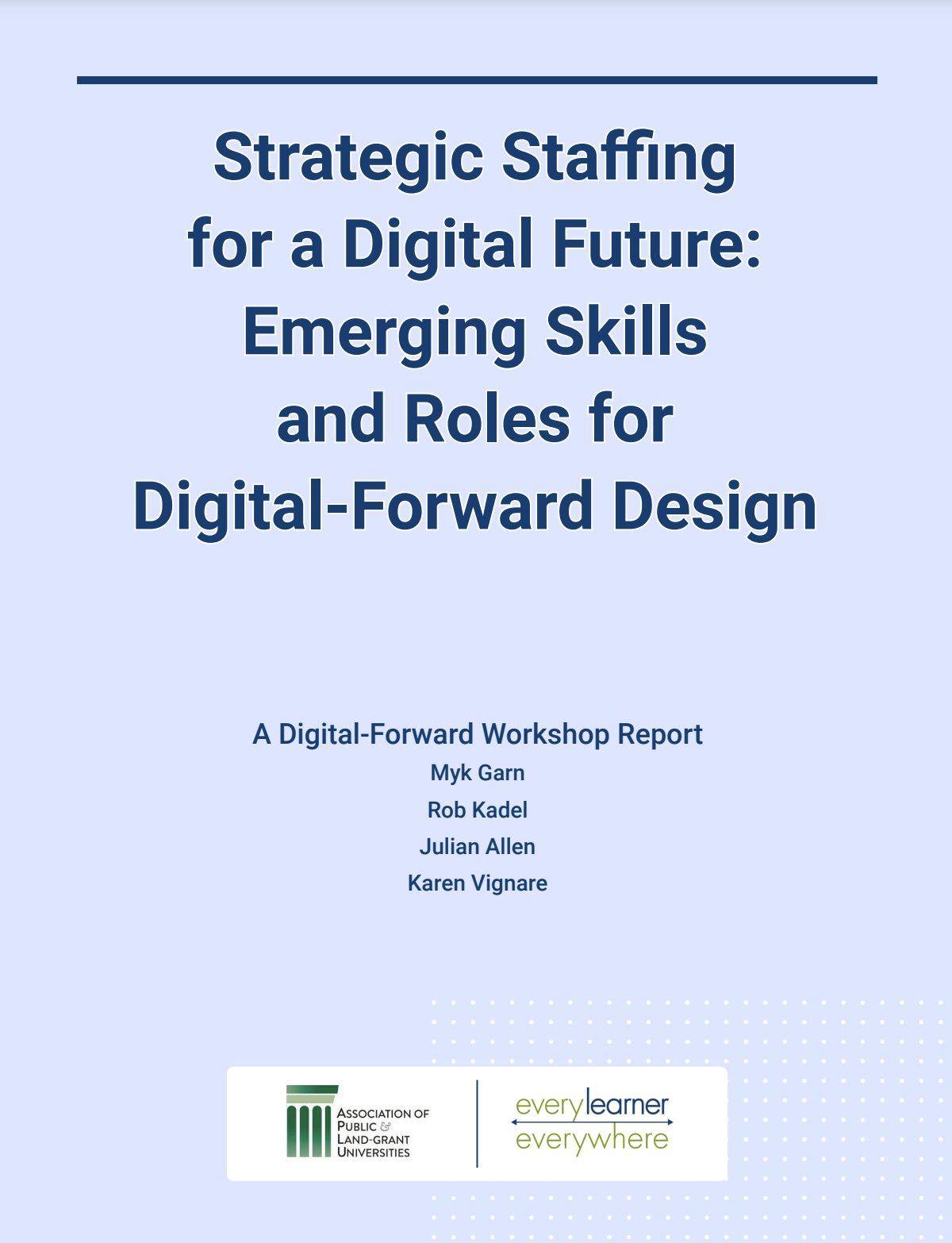
An overview of the APLU Winter 2021 Digital-Forward Skills and Roles Workshop, which identified and described emergent digital-forward skill sets and roles.
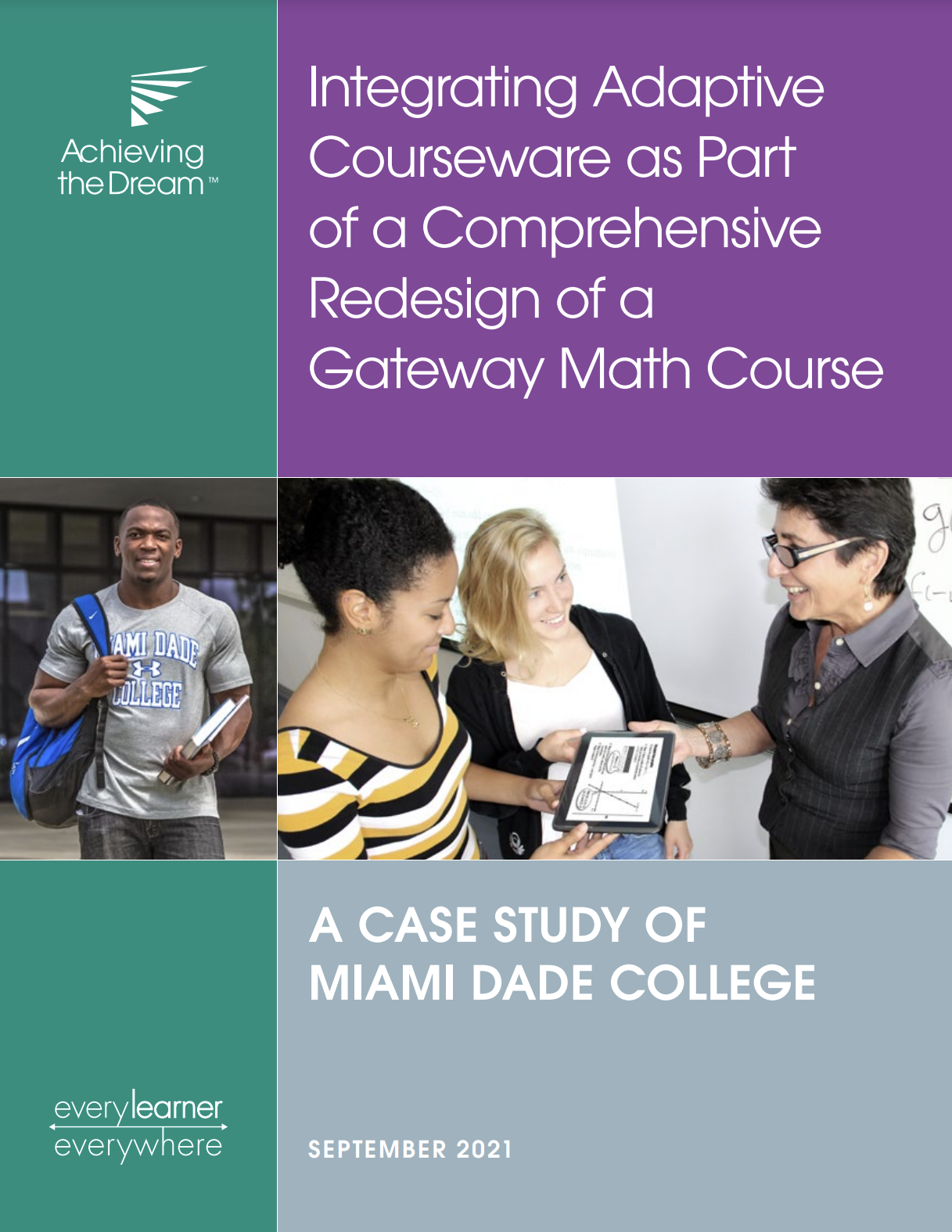
Miami Dade College: Integrating Adaptive Courseware as Part of a Comprehensive Redesign of a Gateway Math Course
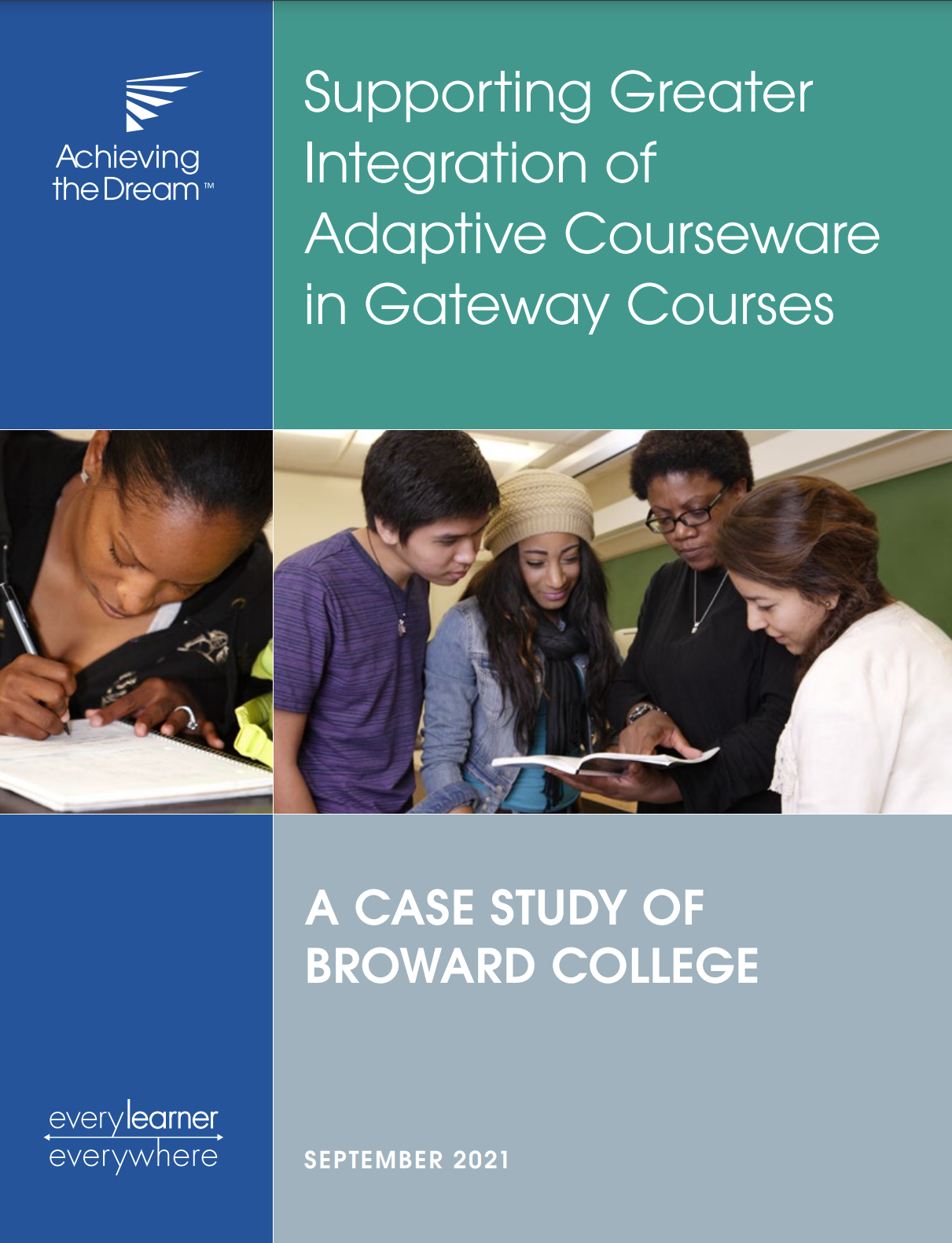
Faculty at Broward College led implementation and integration of adaptive courseware efforts in introductory course design and activities.
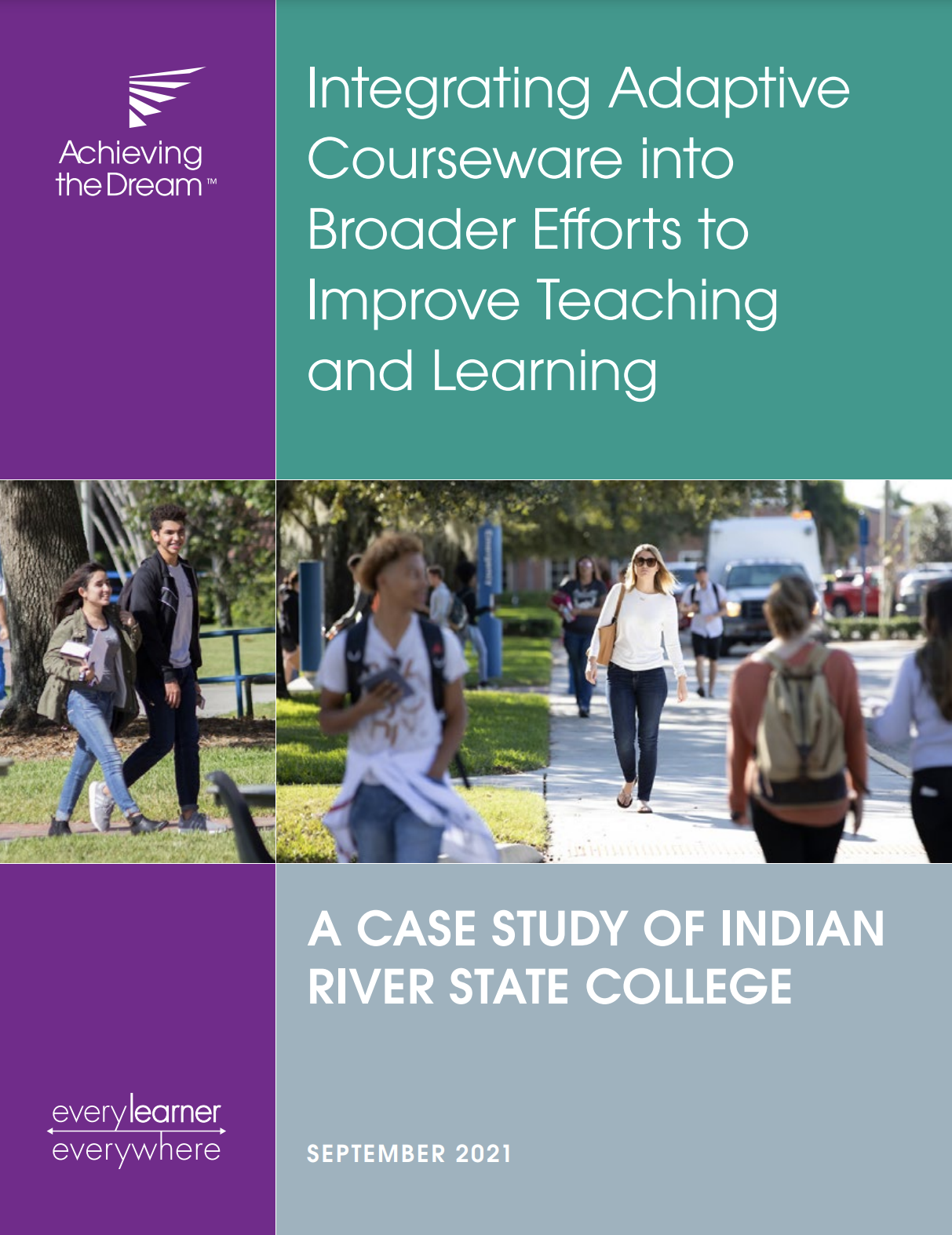
Indian River State College considered adaptive courseware a potentially powerful tool in its ongoing efforts to improve teaching and learning in online instruction and overall engagement and outcomes for students in math, physical sciences, and English.
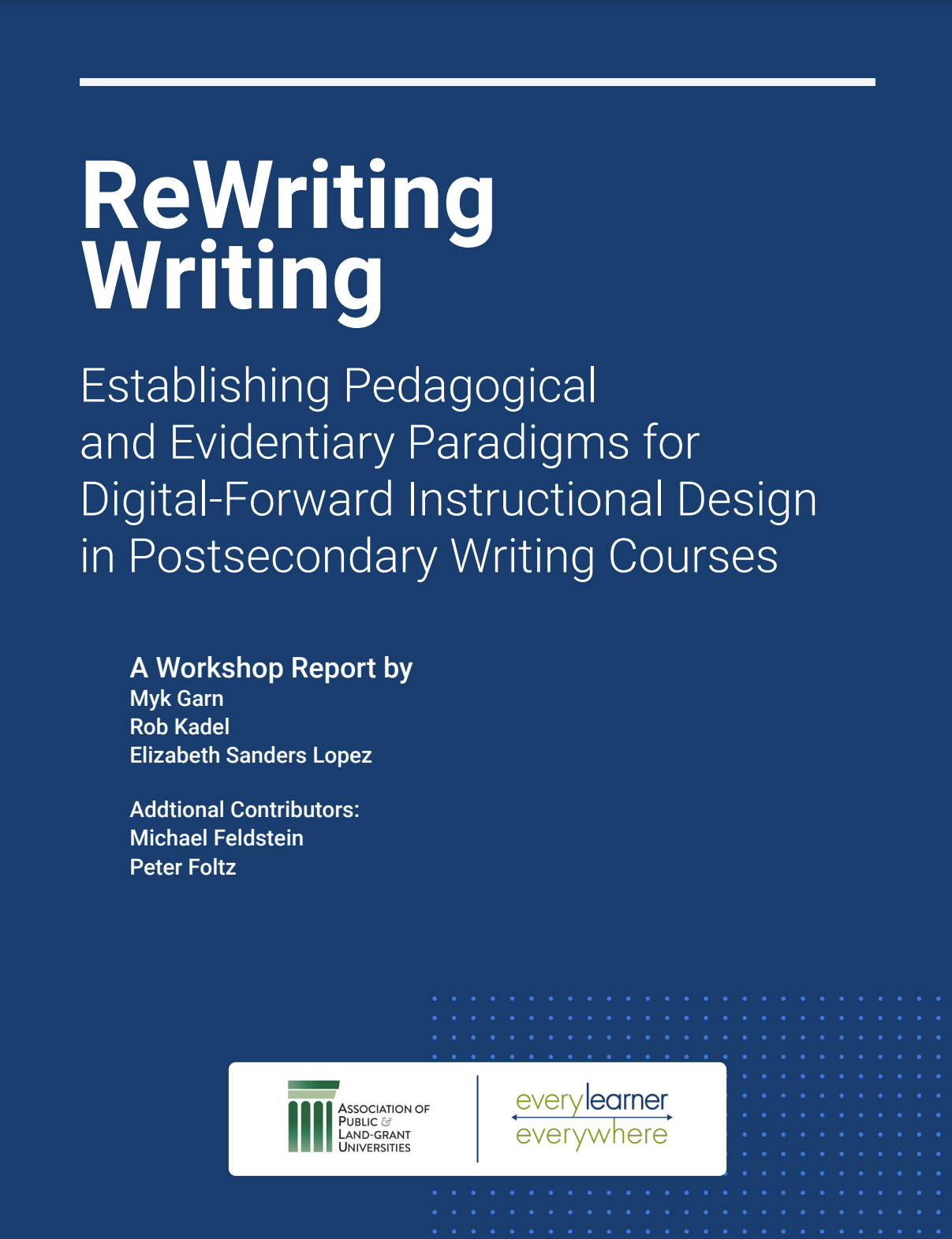
This report summarizes the work of the Re-Writing Writing workshop where we invited a diverse range of digital learning experts to bring their distributed knowledge of digital tools to a four-session virtual workshop.
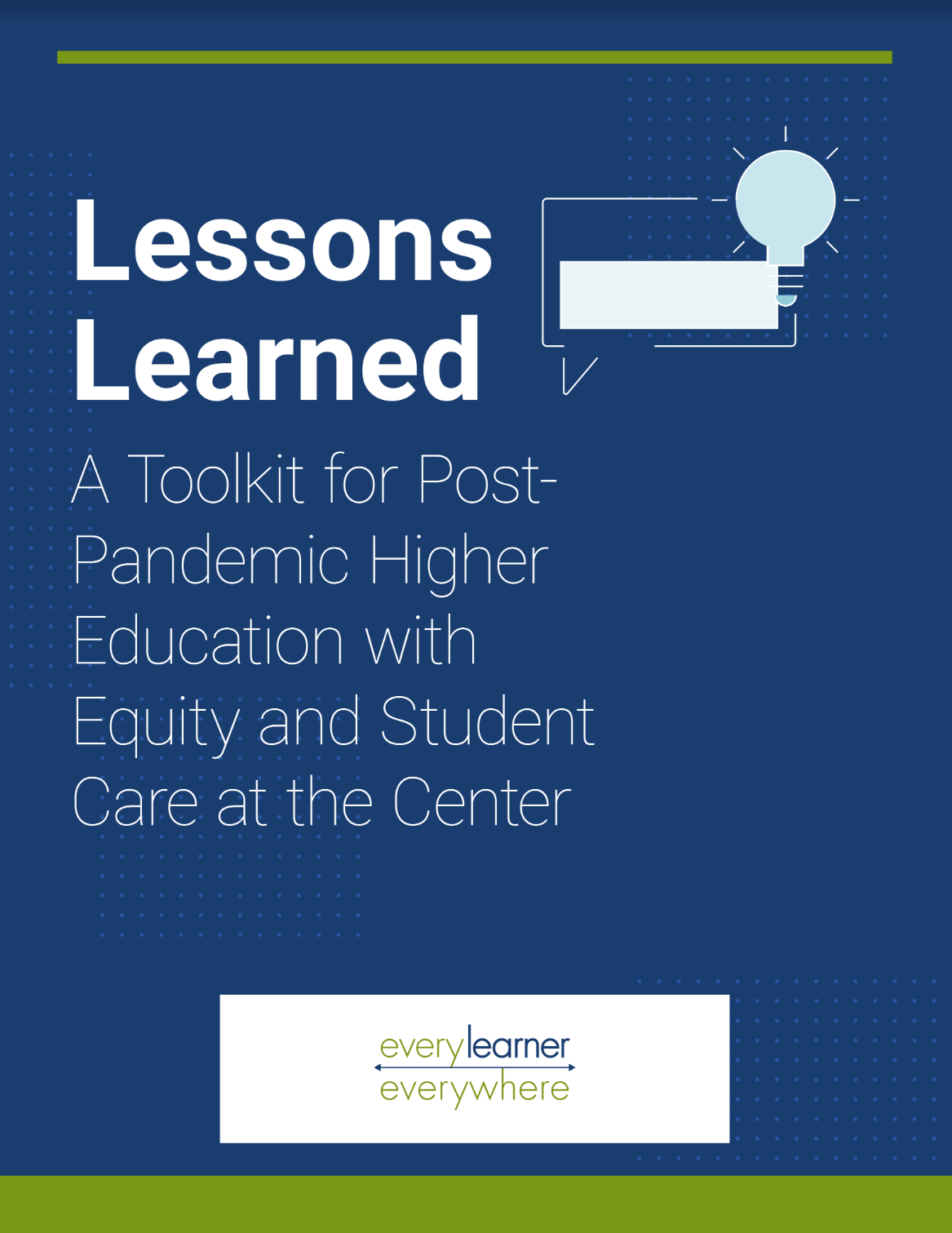
Lessons Learned is made up of over 30 recommendations for improving practices in higher education. It asks where unexpected benefits showed themselves among the forced necessity of emergency remote teaching, and it encourages faculty, administrators, and academic and student support colleagues to continue collaborating to remove barriers, improve access, and update methods and tools.
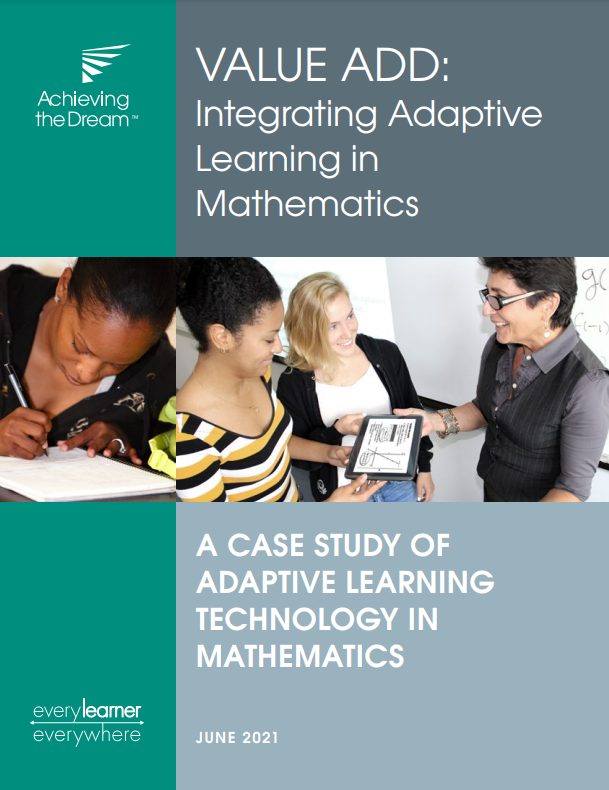
Seven colleges implement adaptive courseware in gateway math courses and find it is a necessary corequisite in supporting student success.
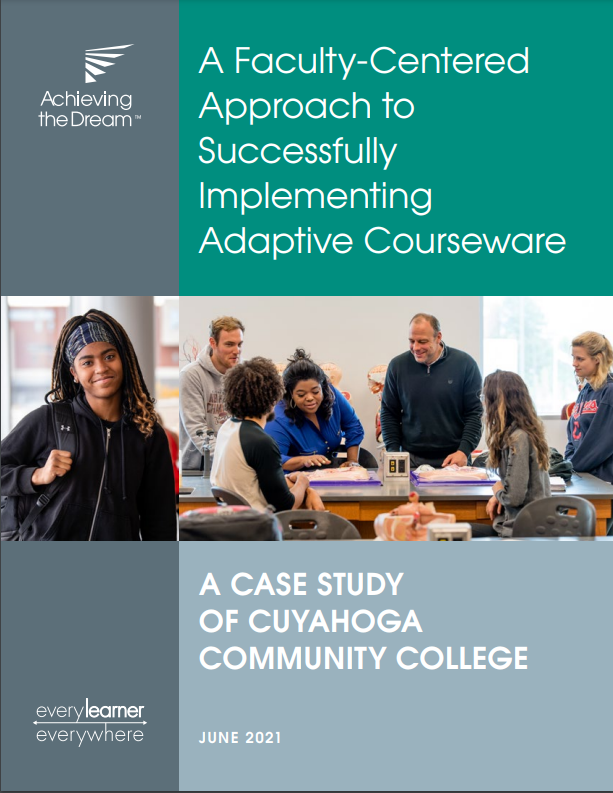
Faculty at Cuyahoga Community College led efforts to implement and then scale adaptive courseware for gateway courses in more than a half-dozen disciplines.
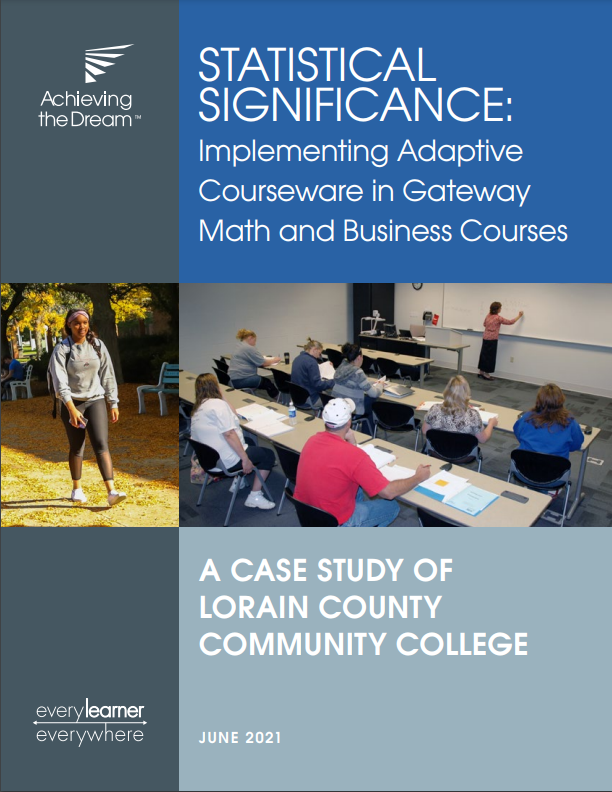
Faculty in several disciplines at Lorain County Community College explored the use of adaptive courseware, ultimately implementing it in a gateway statistics course and several business courses.
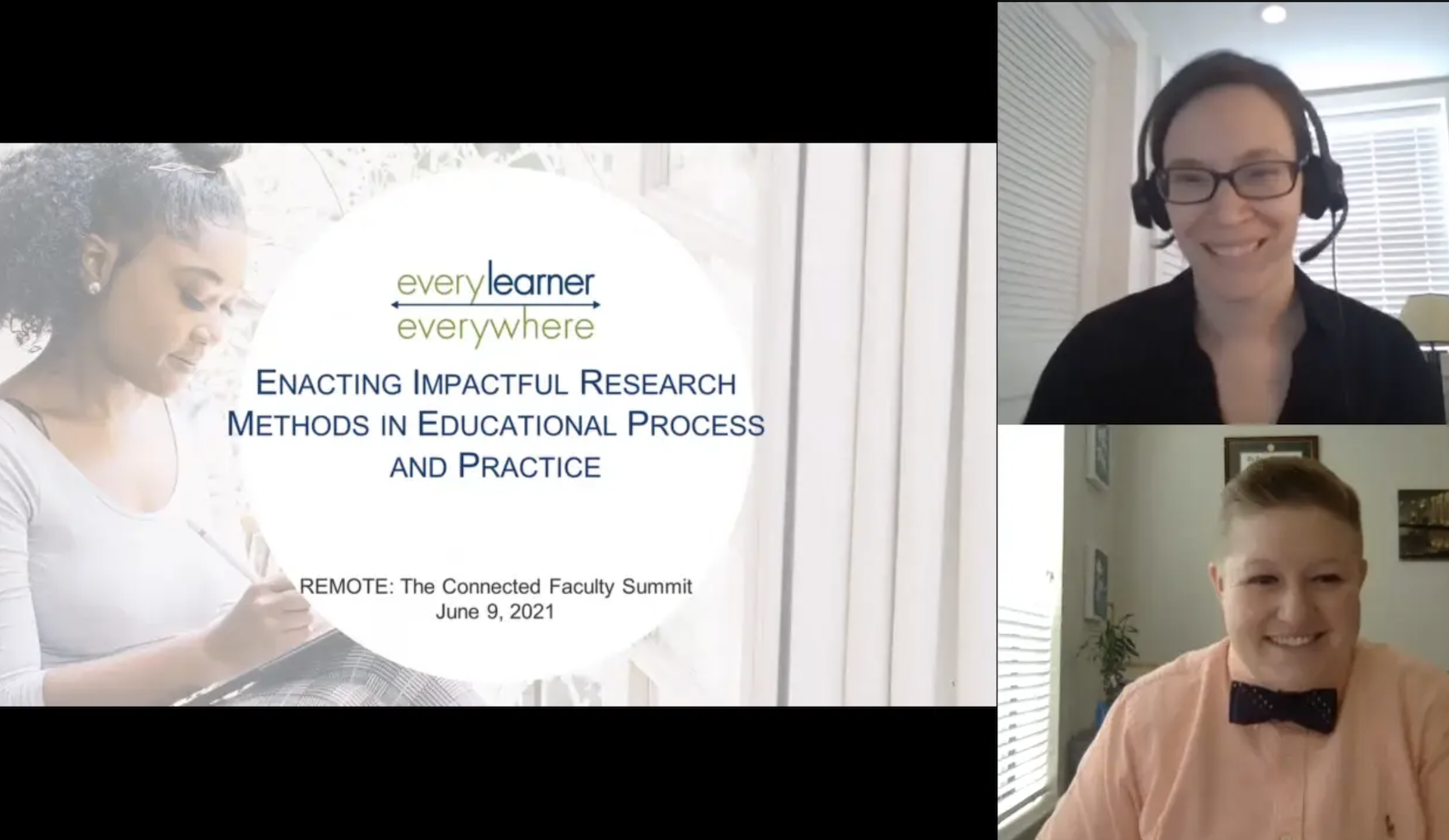
An overview of how continuous improvement strategies in our educational process and practice can be used to improve student engagement and increase academic success.
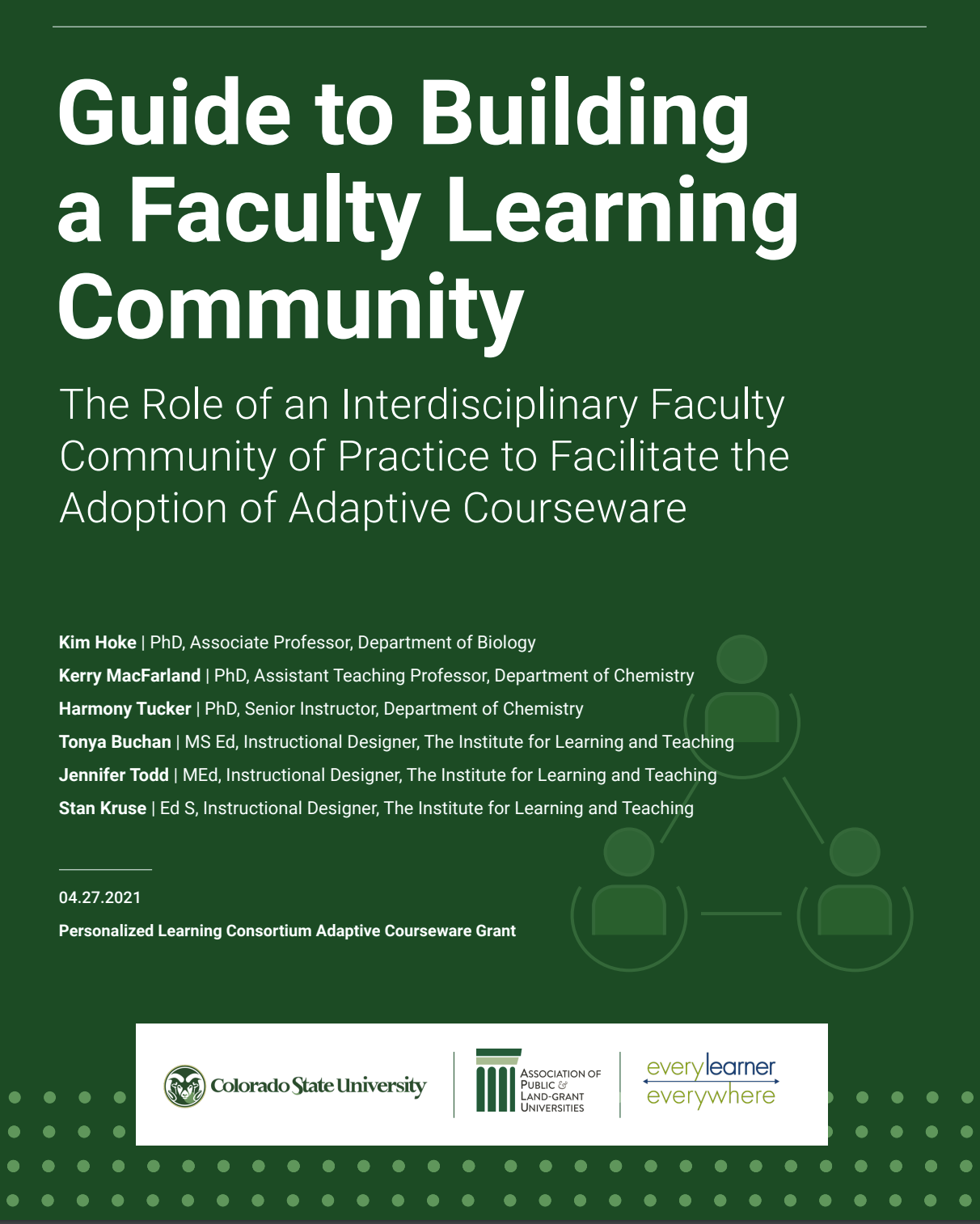
This resource describes how to build and maintain faculty learning communities, details some logistics, and provides a case study from Colorado State University along with testimonials from instructors.
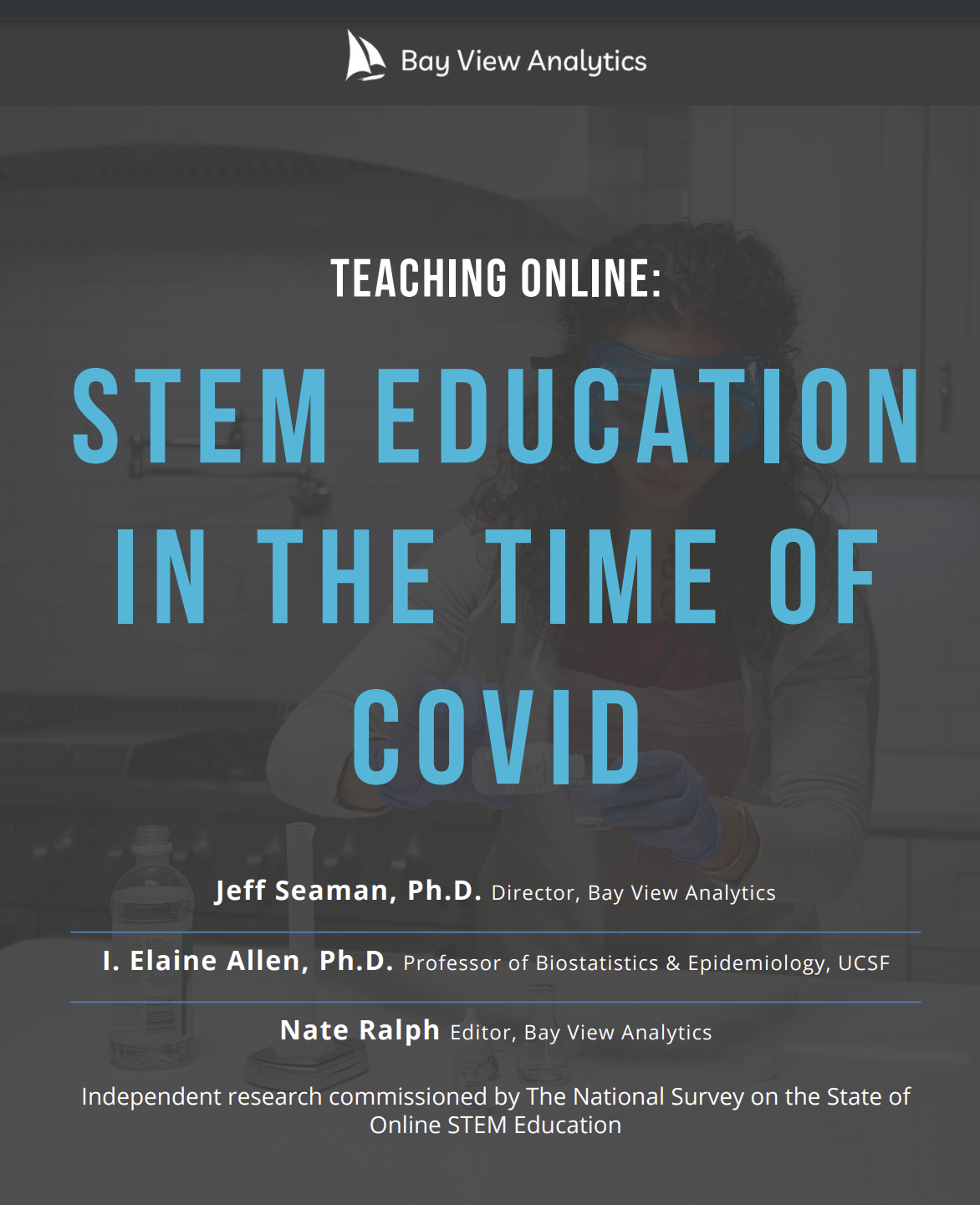
This fall 2020 survey explores the impact COVID had on higher education faculty in STEM fields and how that experience informed their opinions of online education’s effectiveness..
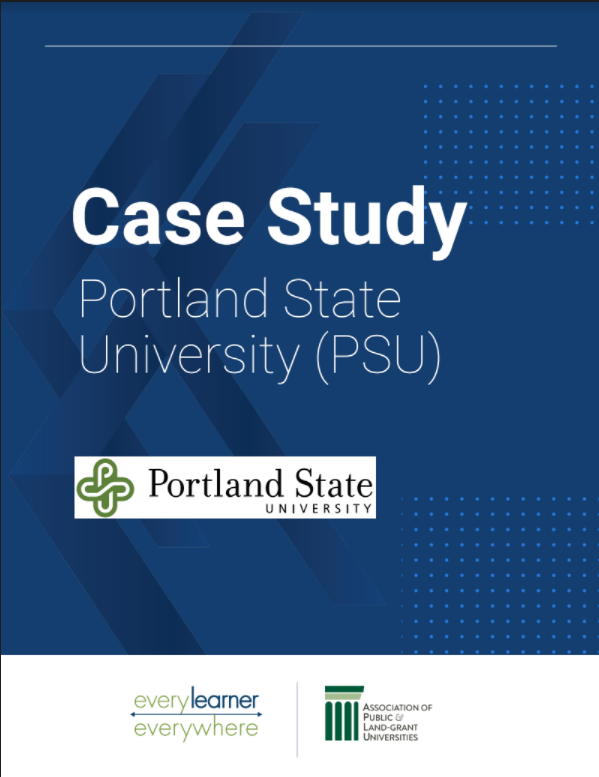
Combining active learning with adaptive courseware leads to a statistically significant reduction of DFW grades in foundational courses.
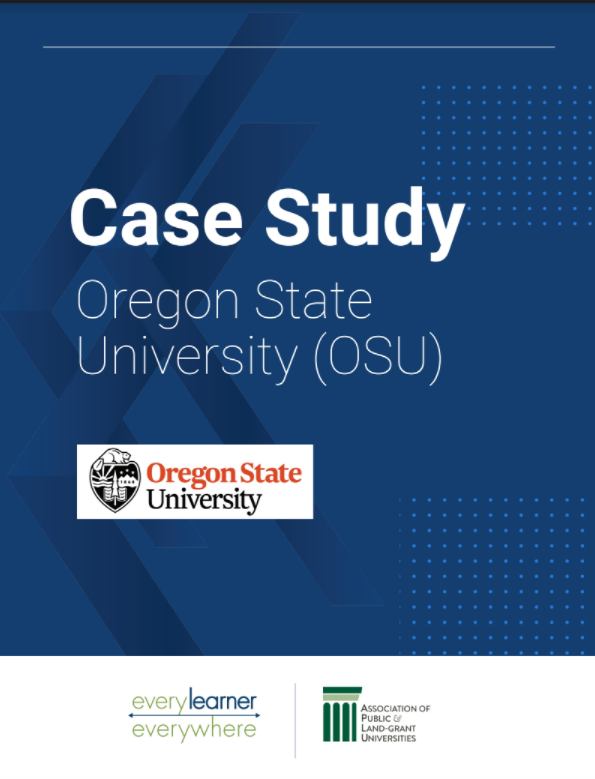
Stakeholder engagement and close collaboration important to the adaptive courseware implementation process.
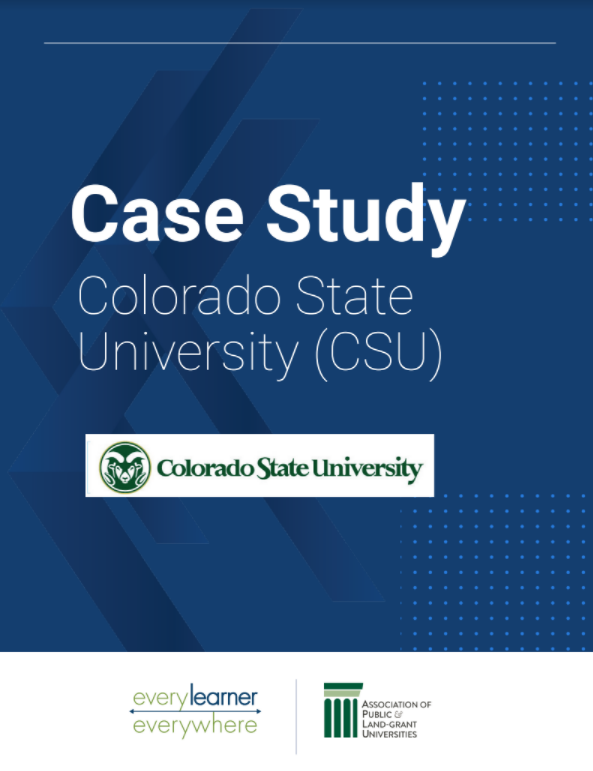
A case study at Colorado State University (CSU), found the use of active learning and adaptive courseware, along with an intentional faculty development program, are key in the implementation of adaptive courseware.
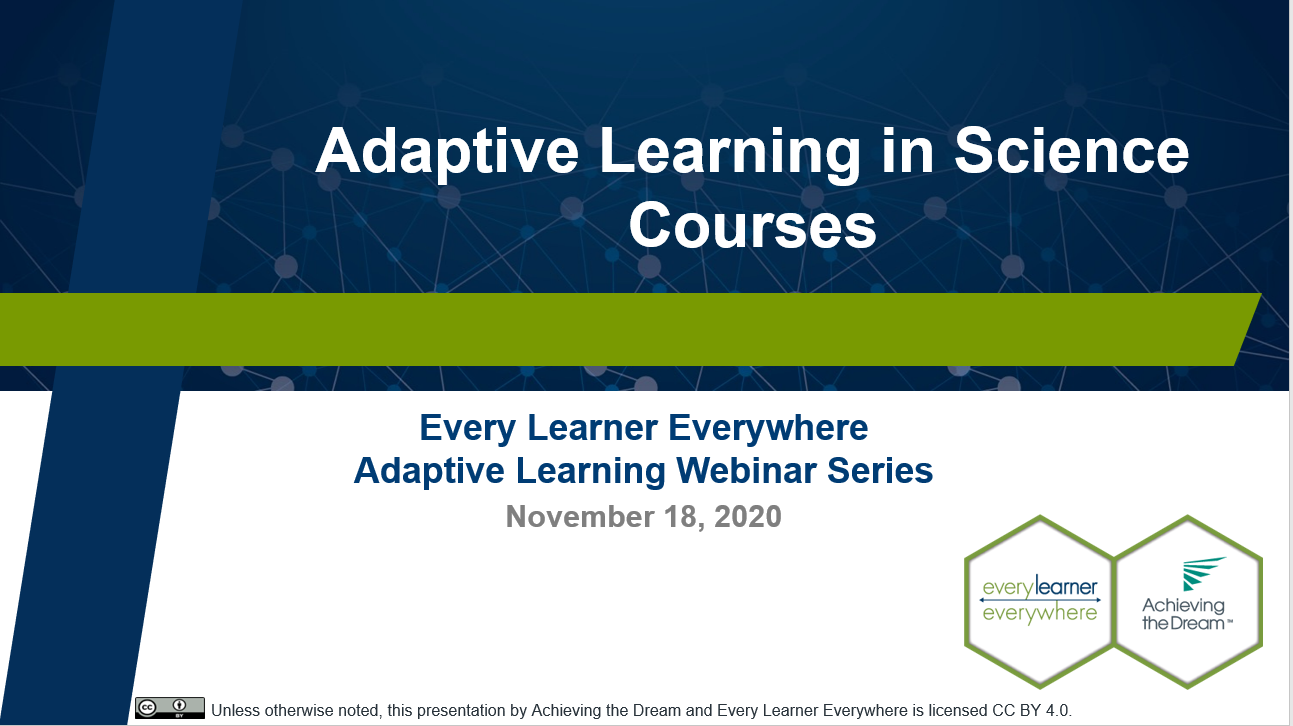
Faculty discuss adaptive learning in science and how tools and practices can transform courses to increase student success.
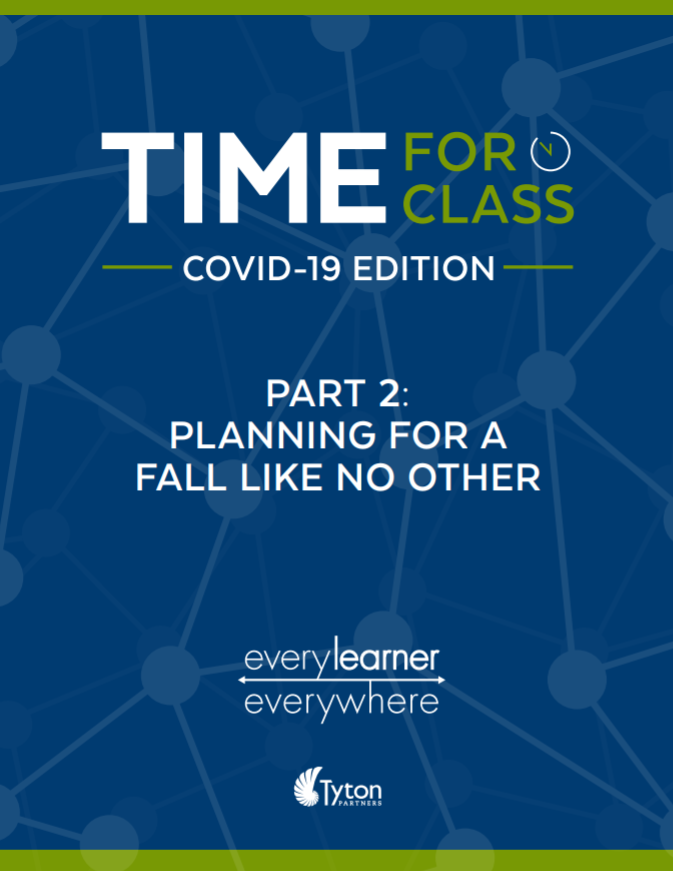
This is the second report in an ongoing series designed to understand the ongoing impact of the COVID-19 pandemic on teaching and learning in higher ed.
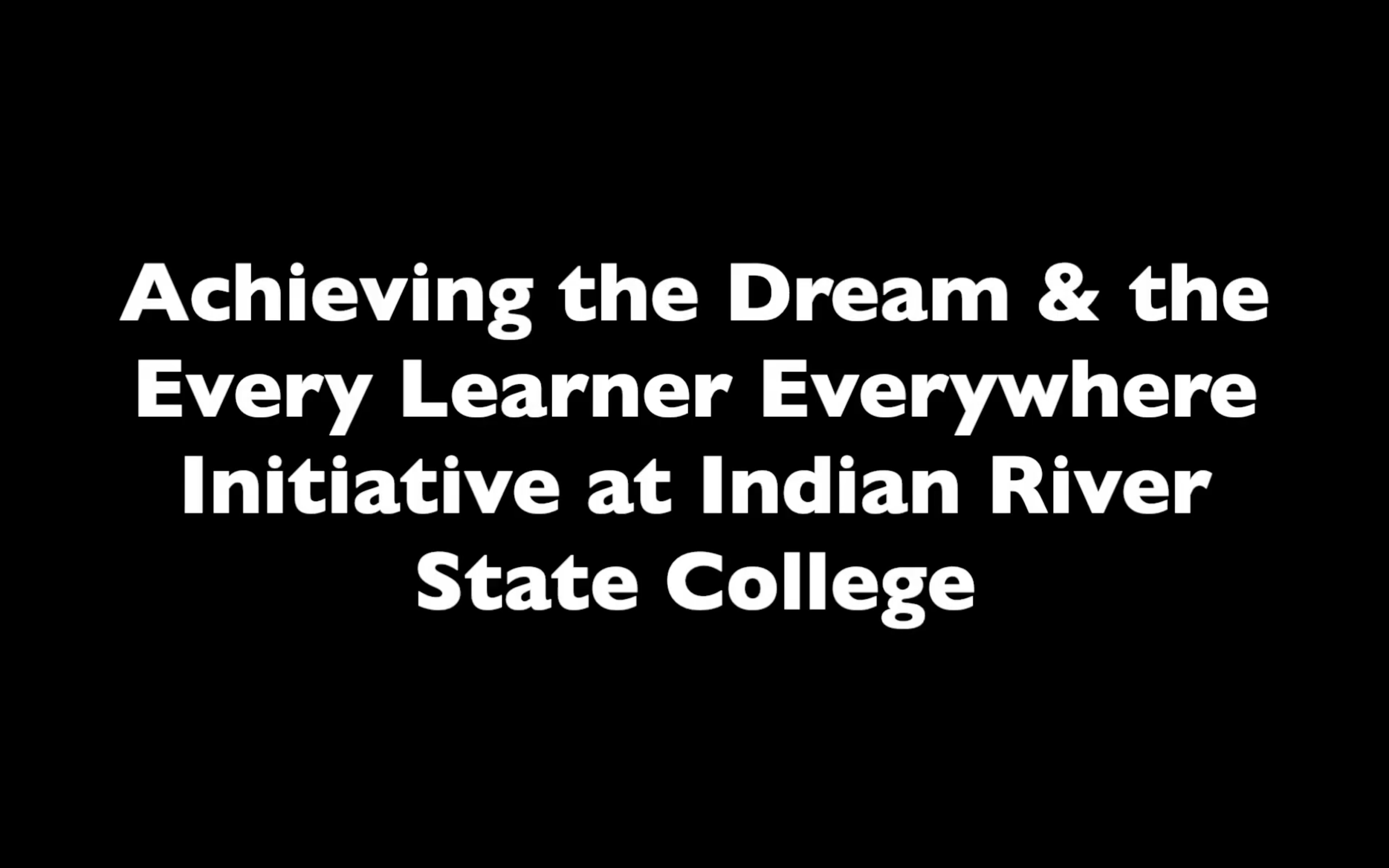
Faculty and administrators at Indian River State College discuss transitions to adaptive learning during the 2019-2020 school year.
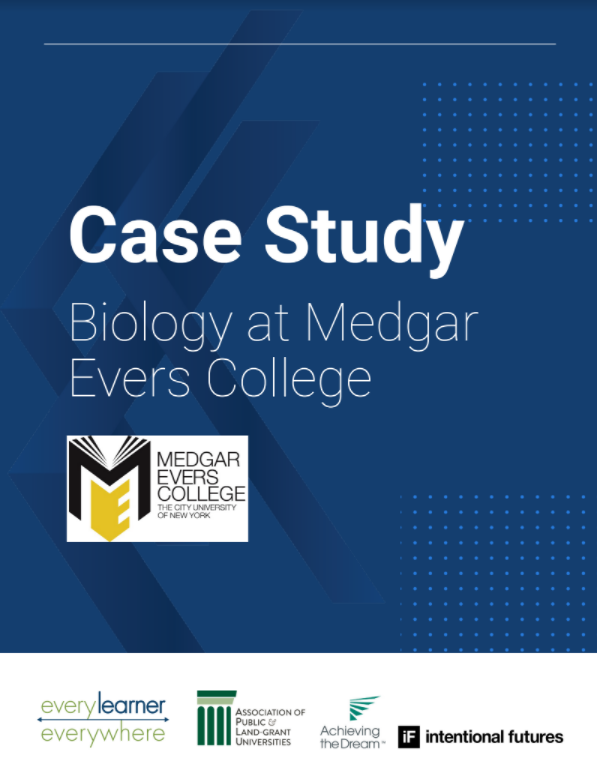
This case study looks at how active learning and learning analytics can improve student success in biology courses.
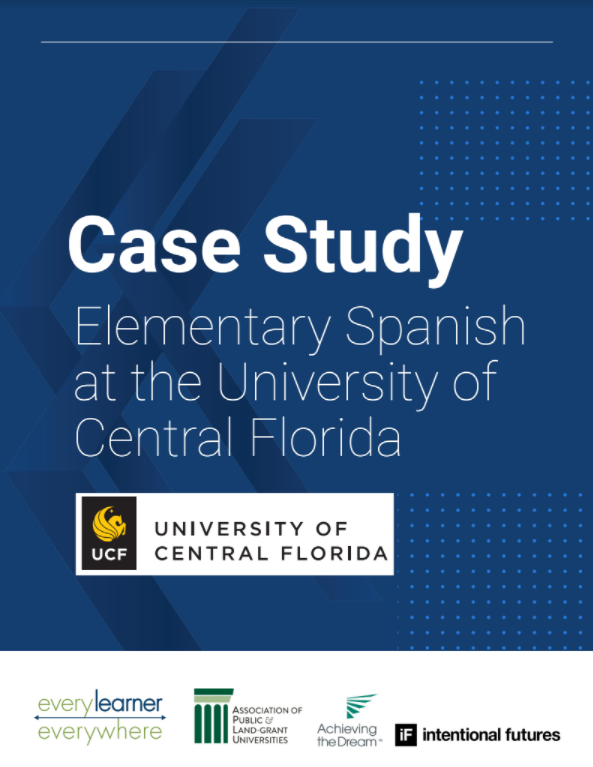
This case study on elementary Spanish looks at how to customize a course for a students by involving them in review and updates.
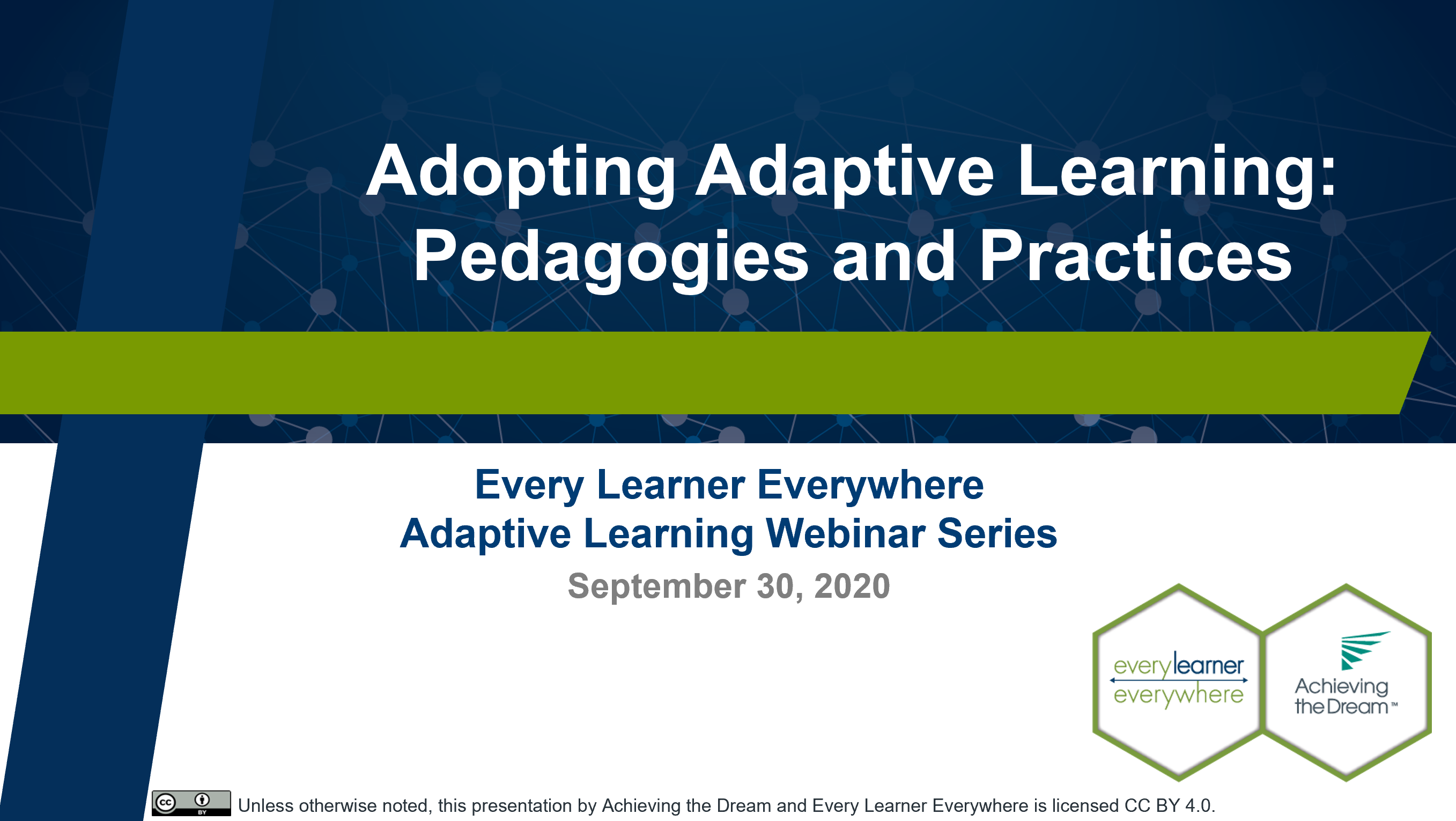
Faculty discuss how they’ve brought adaptive learning into their courses, and how it has altered teaching and learning for them and their students.
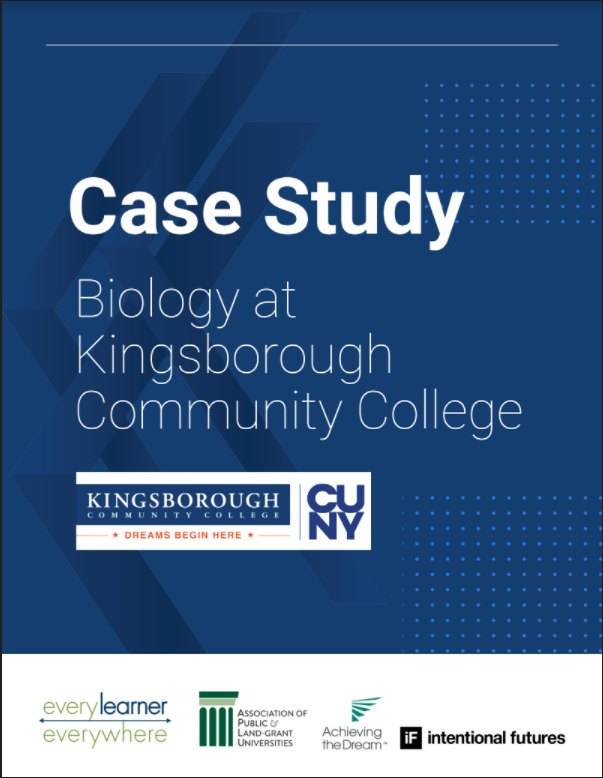
This case study looks at how biology students can make test bank questions relevant by co-writing them
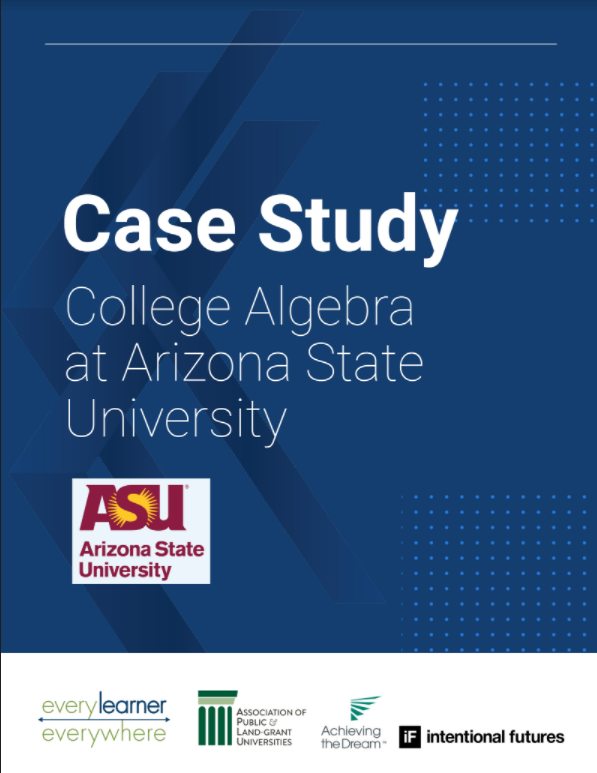
This case study looks at removing barriers and increasing student success in college algebra.
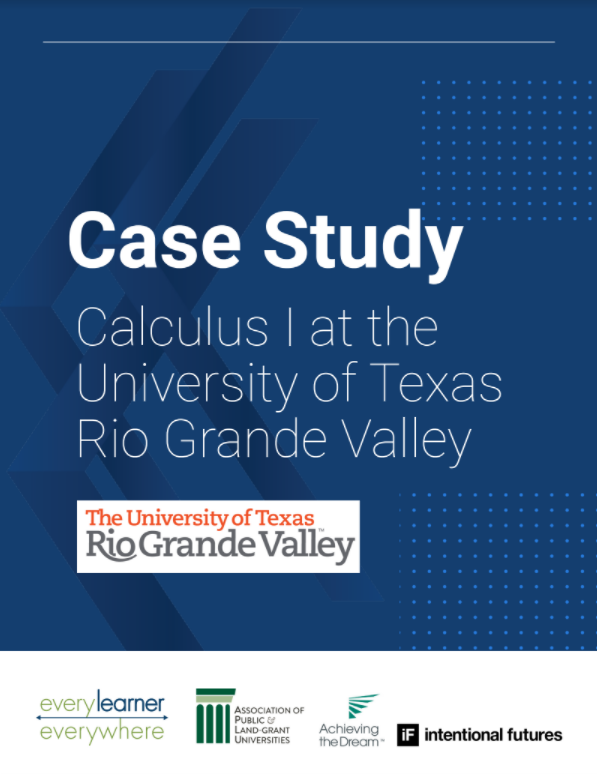
This case study looks at how Calculus faculty are improving student success through multi-section coordination.
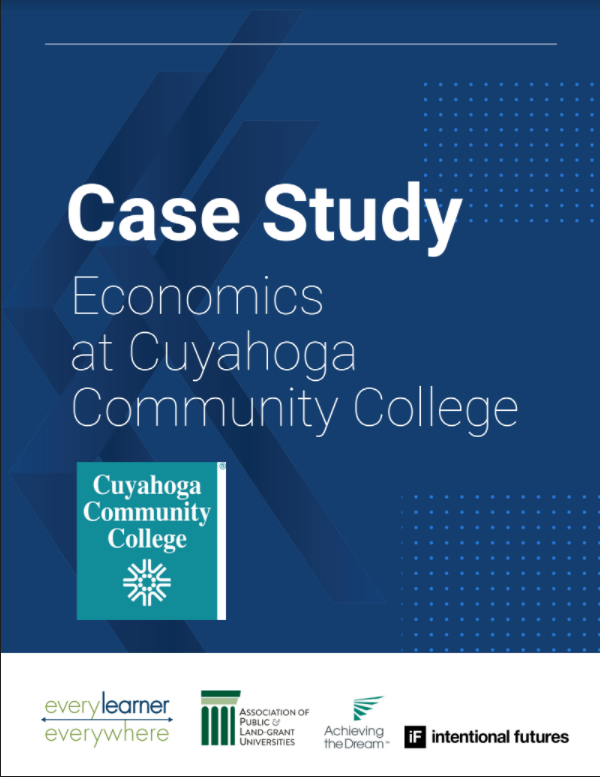
This case study looks at how one professor is increasing Course Success in economics through Student Engagement and Active Learning.
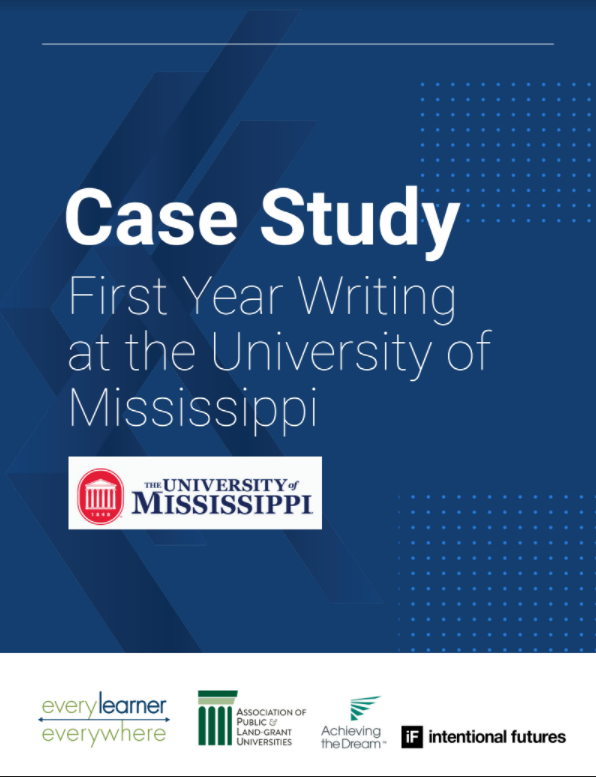
This resource provides suggestions for breaking down those barriers to international students in online learning.
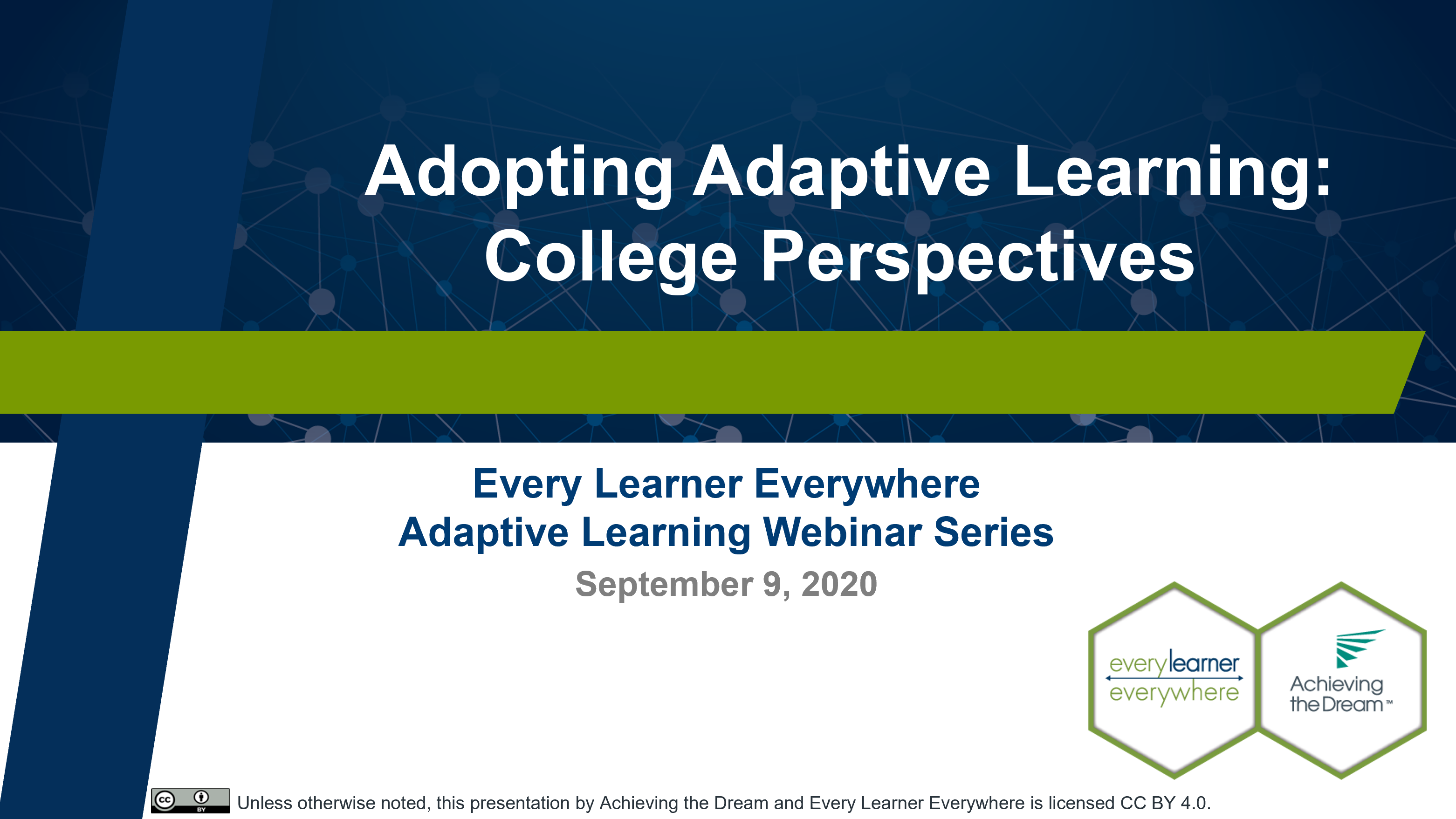
Faculty and staff from various ATD colleges share their experiences implementing adaptive learning at their colleges
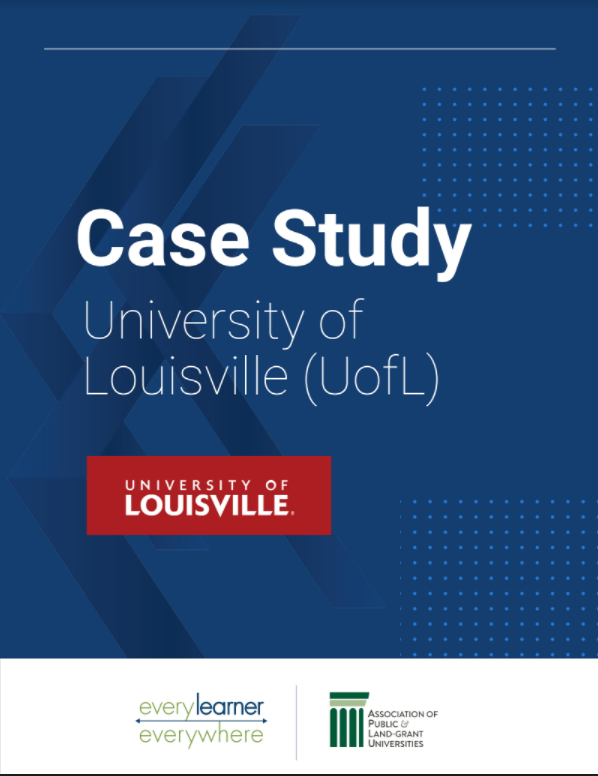
This case study from the University of Louisville demonstrates their approach to leveraging adaptive courseware to improve course design.
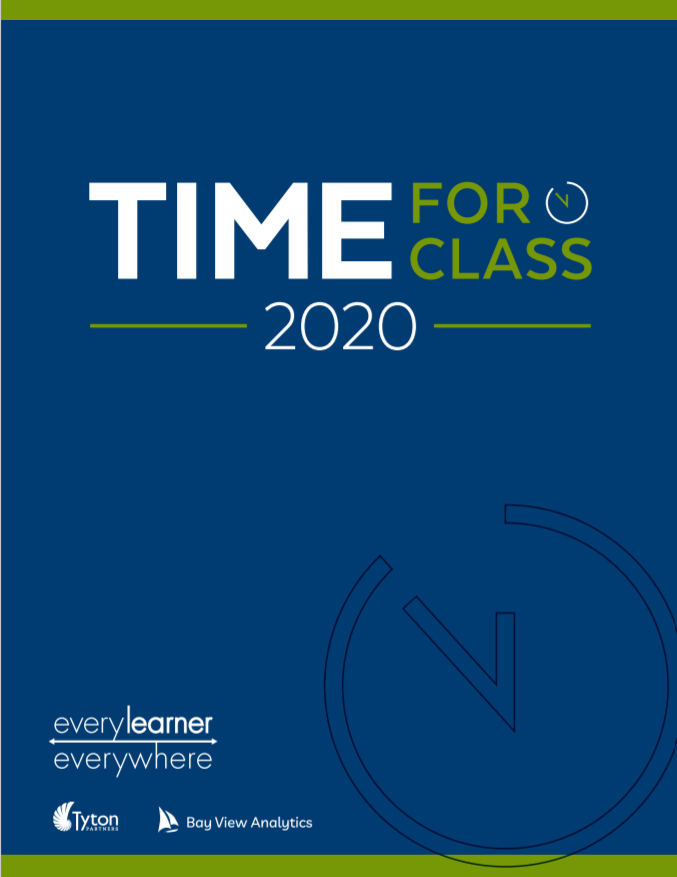
This survey is designed to help higher education stakeholders gain an understanding of digital learning tools for increasing affordability and accessibility for students.
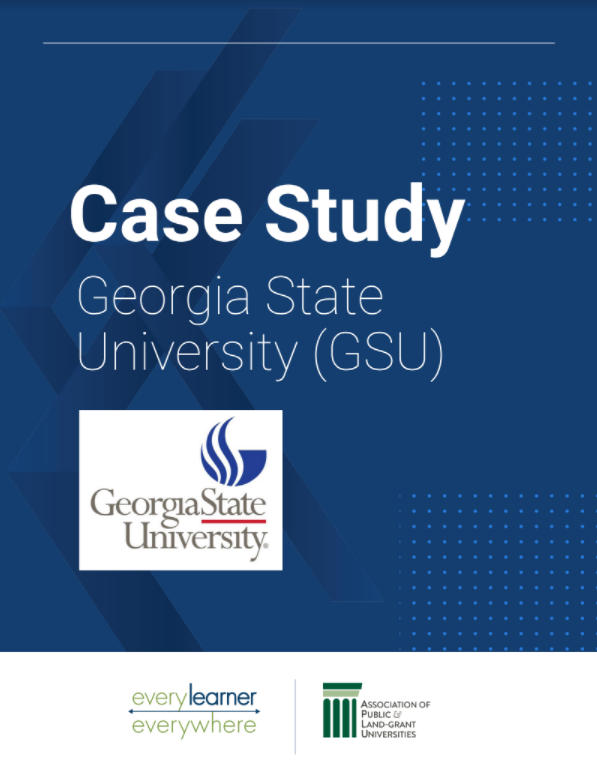
This case study from Georgia State University demonstrates their approach to scaling adaptive courseware and the effective use of analytics.
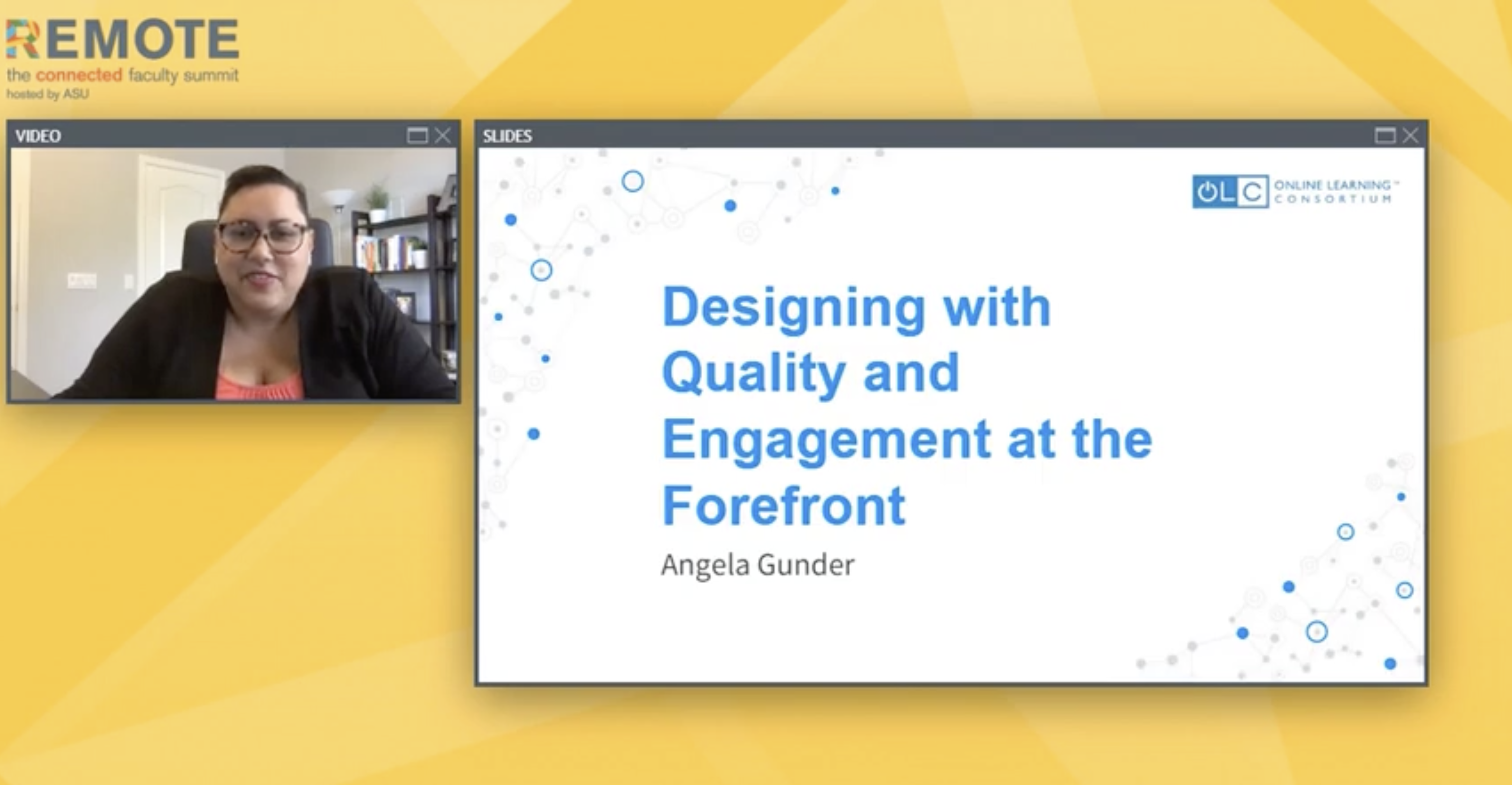
Angela Gunder of OLC and Alisha Mendez of EdPlus ASU discuss equitable practices and outcomes-based approaches to designing with quality instruction online.
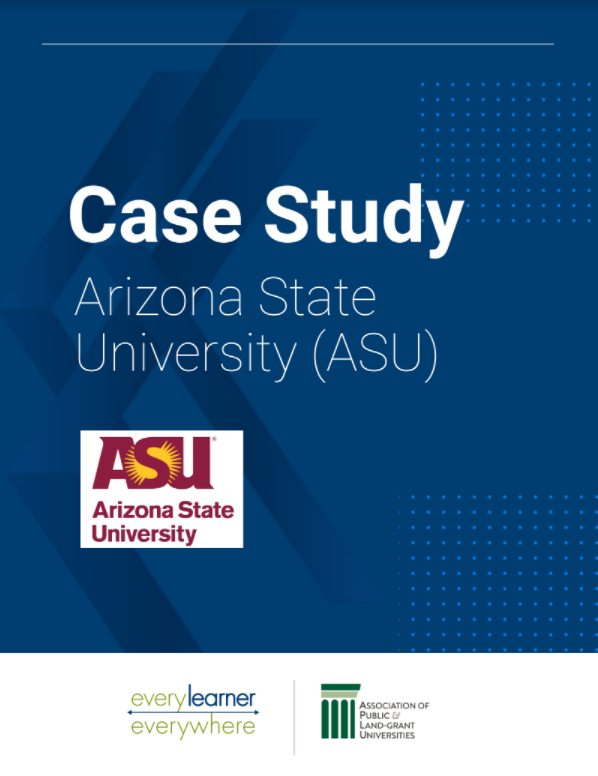
In this case study, Arizona State University shares the progress of their adaptive courseware implementation.
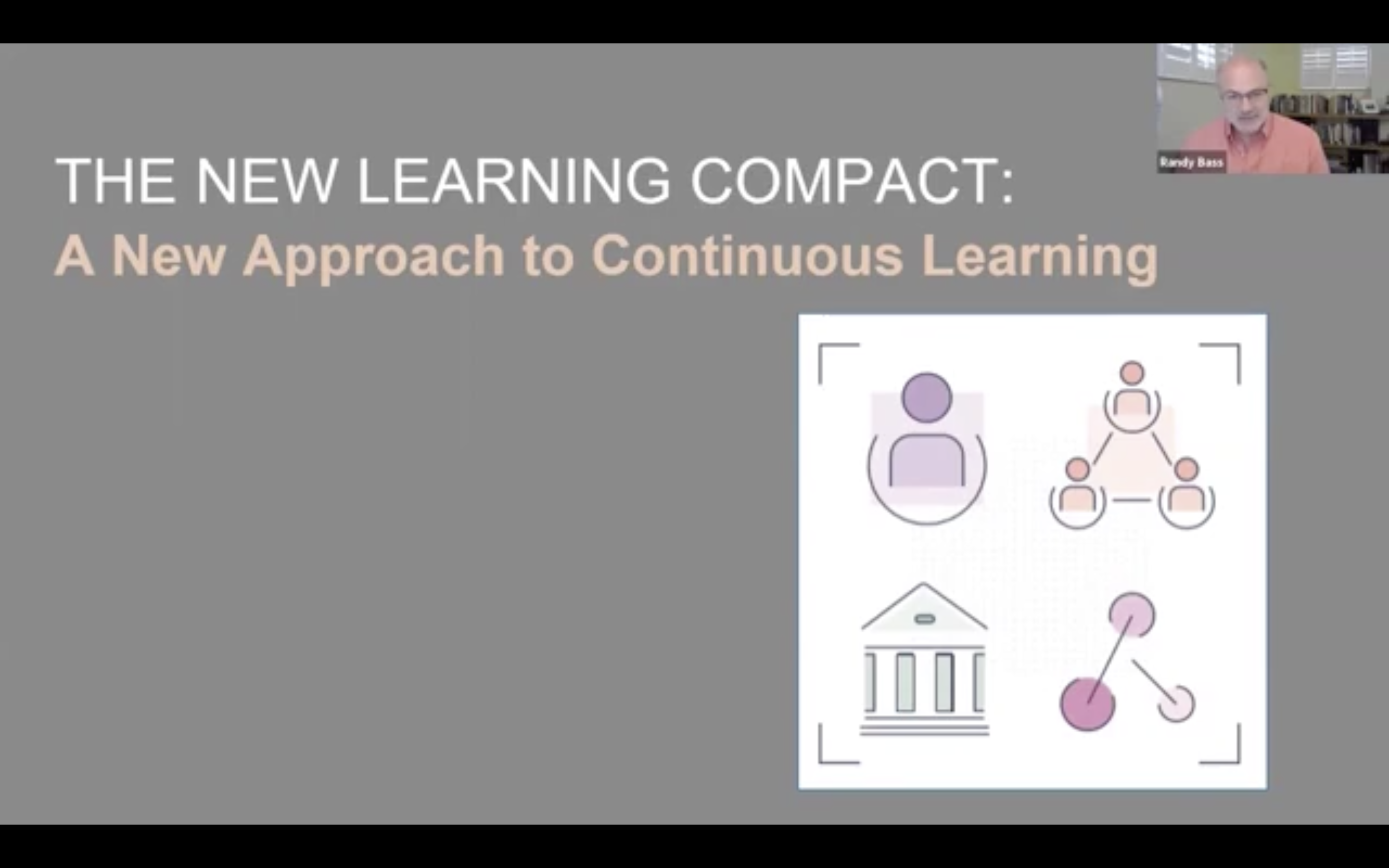
Faculty developers discuss the New Learning Compact Framework and the importance of professional learning and development during a crisis and beyond.
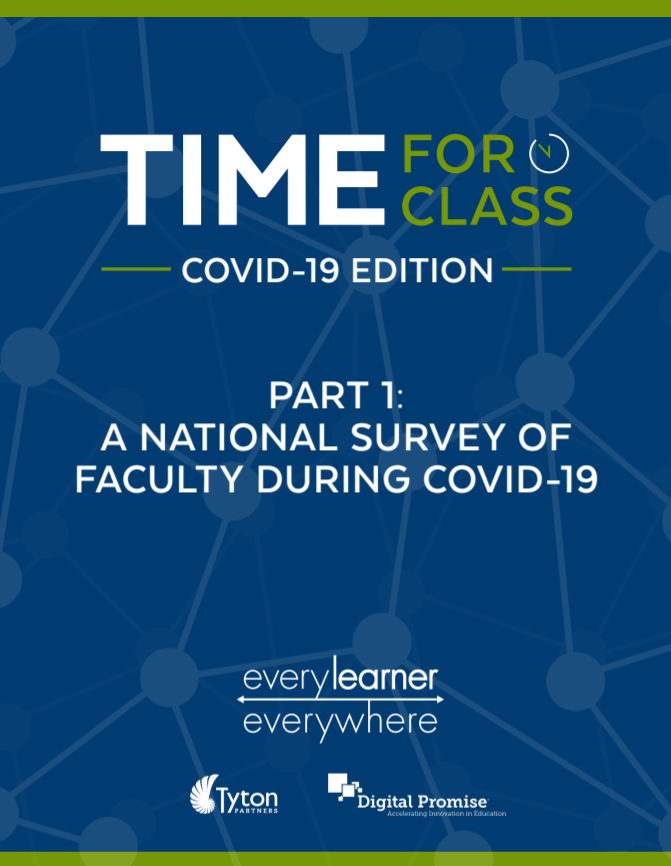
The report presents first results from an ongoing series of surveys and focus groups with faculty designed to understand the impact of COVID-19 on higher ed.
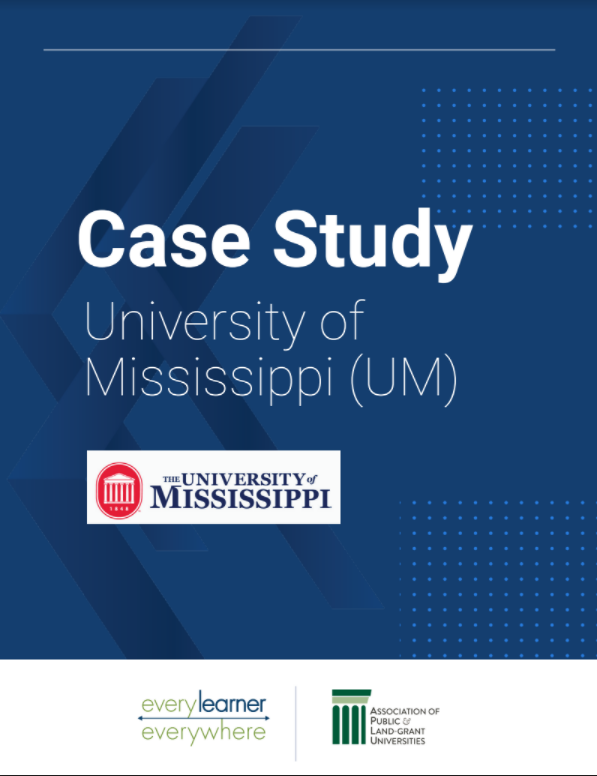
This case study looks at faculty support and buy-in and draws on valuable insights from student focus groups.
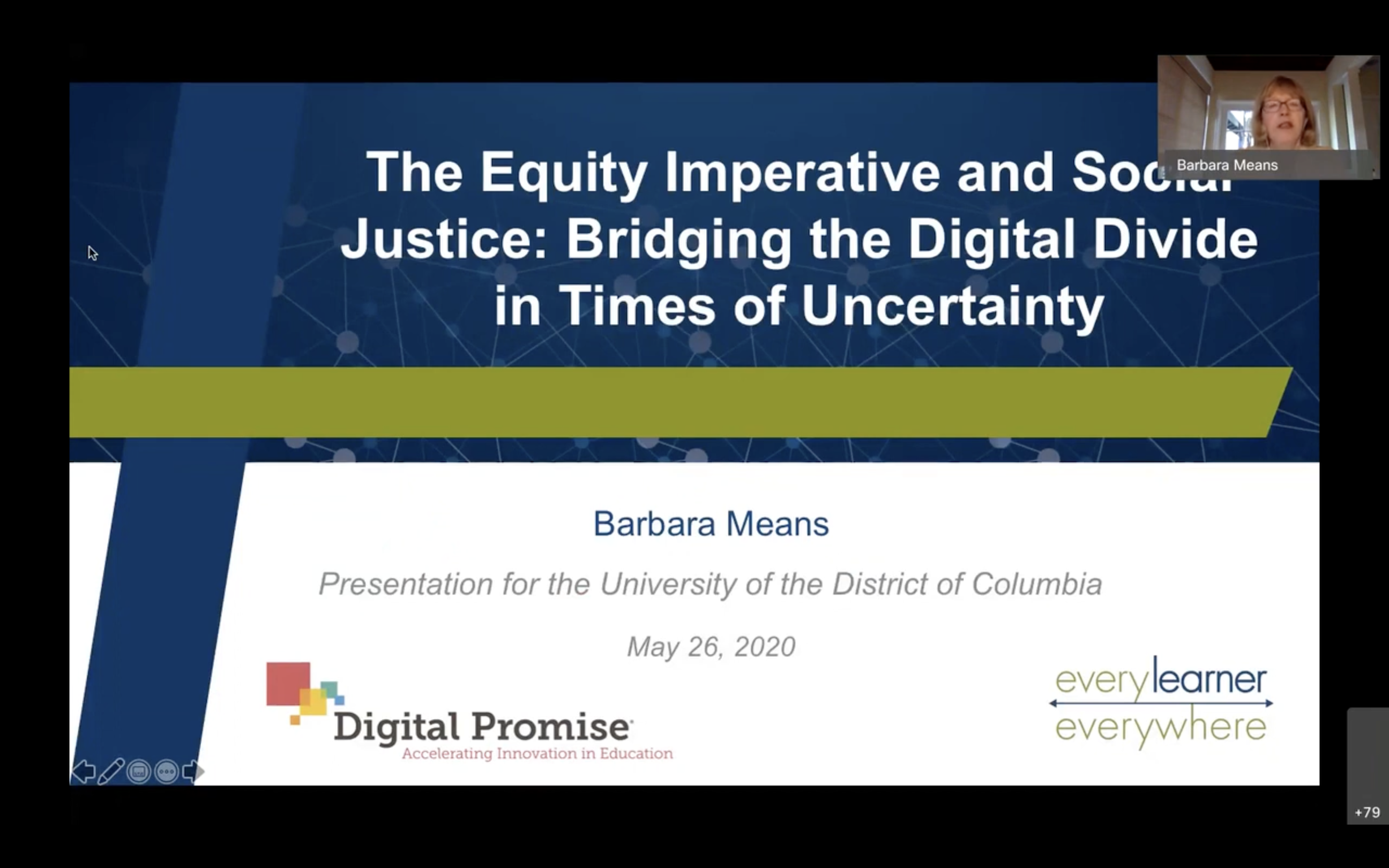
Barbara Means of Digital Promise presents findings from a survey of students learning remotely and offers solutions for bridging the digital divide at the University of the District of Columbia.
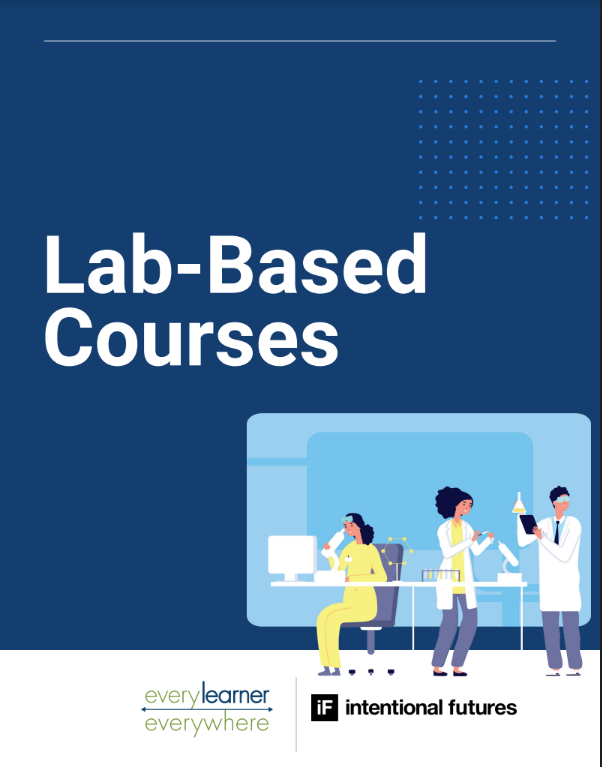
In this resource, we’ve given an overview of a variety of options for lab-based courses to translate experimental activities to a digital learning environment.
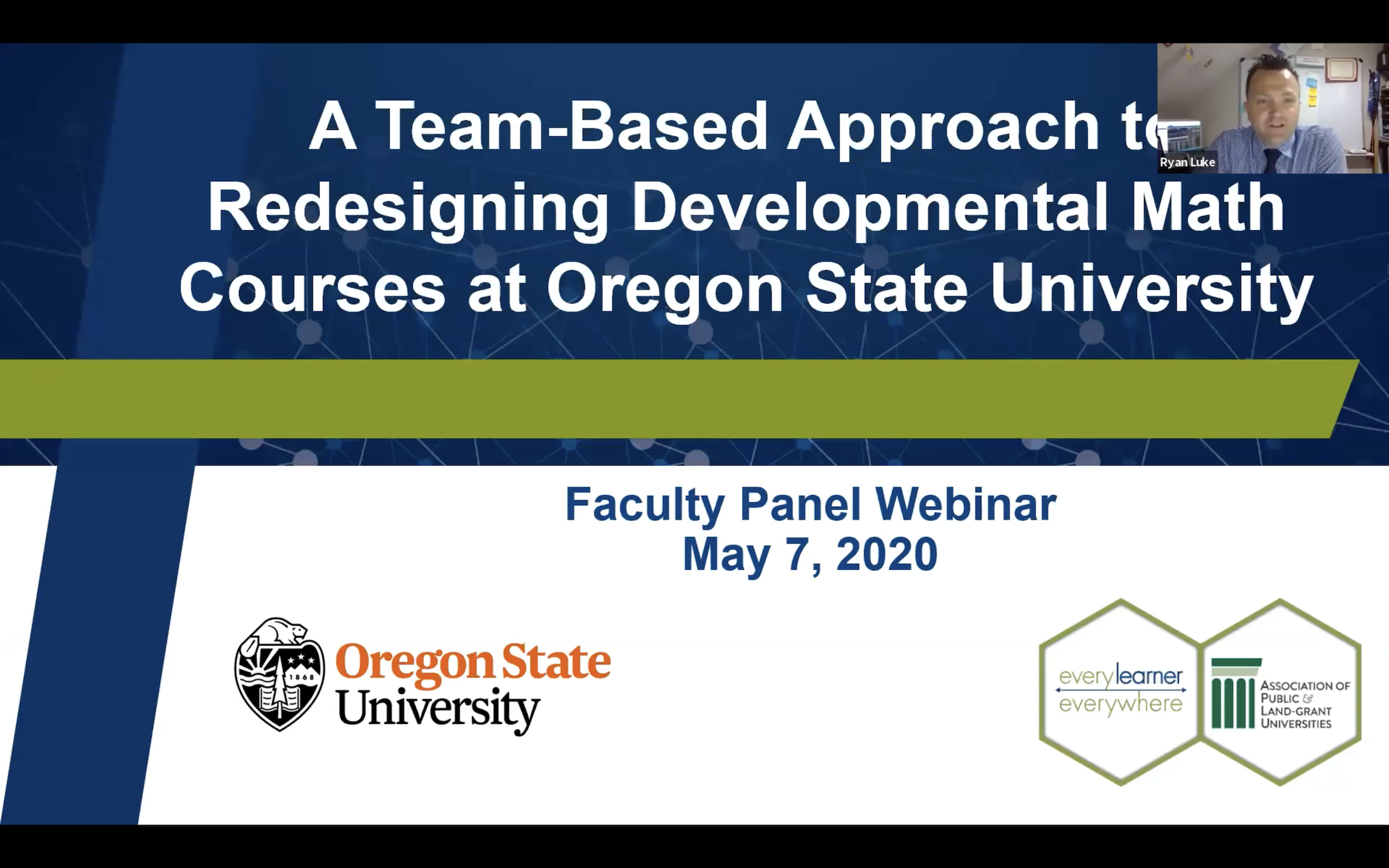
Faculty share how they coordinated the redesign of their developmental math courses using adaptive learning courseware to successfully improve course Drop/Fail/Withdrawal rates.
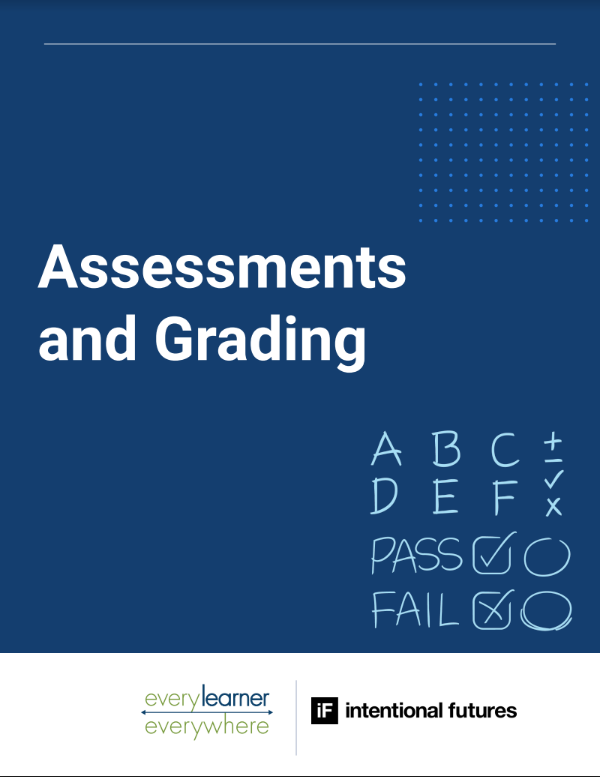
This resource offers adjustments to make to your assessment practices that can help you adapt your assessments during academic disruption.
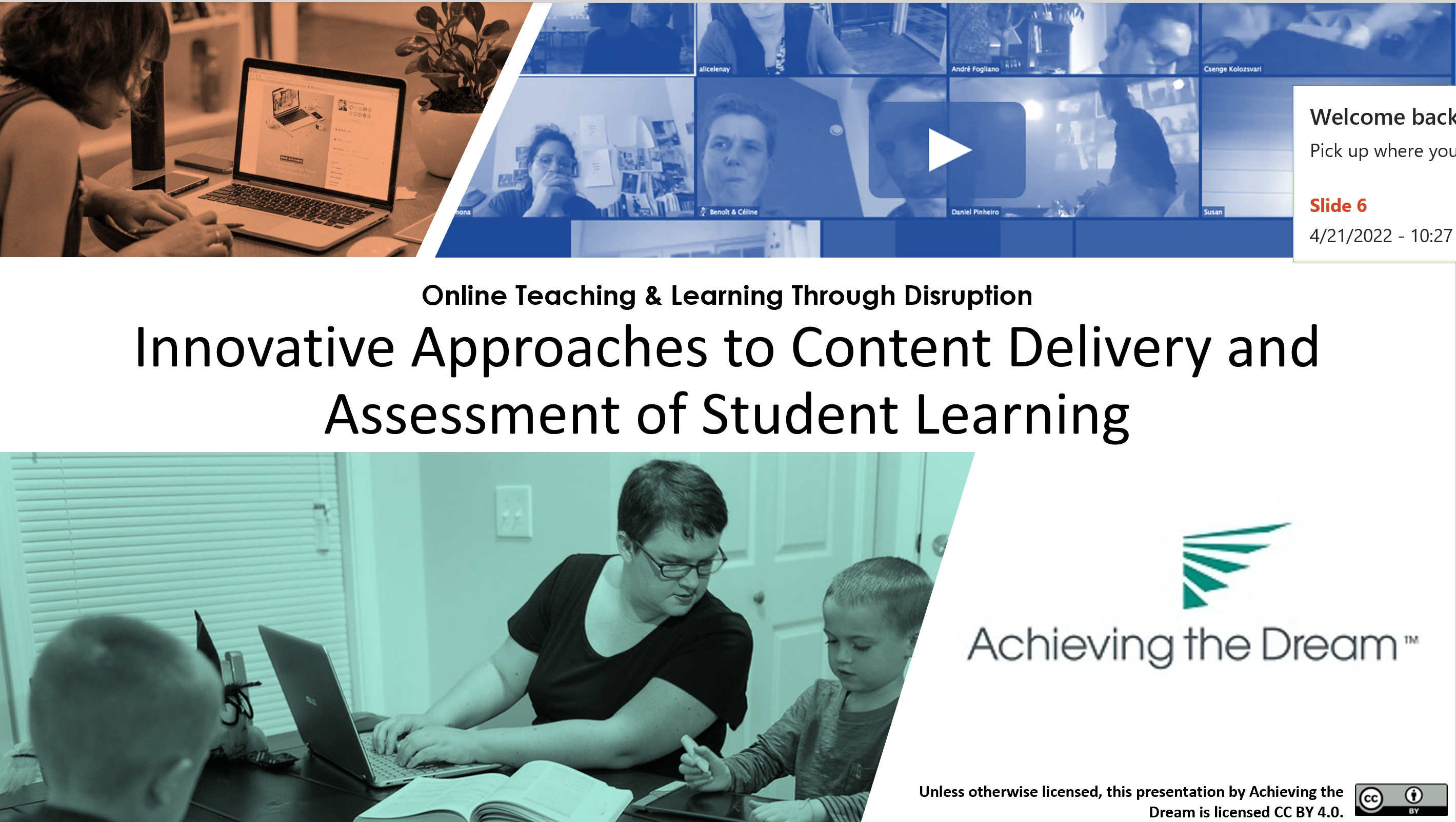
A webinar focused on supporting faculty, staff, and students during the closure of community college campuses across the United States during the Covid-19 pandemic.
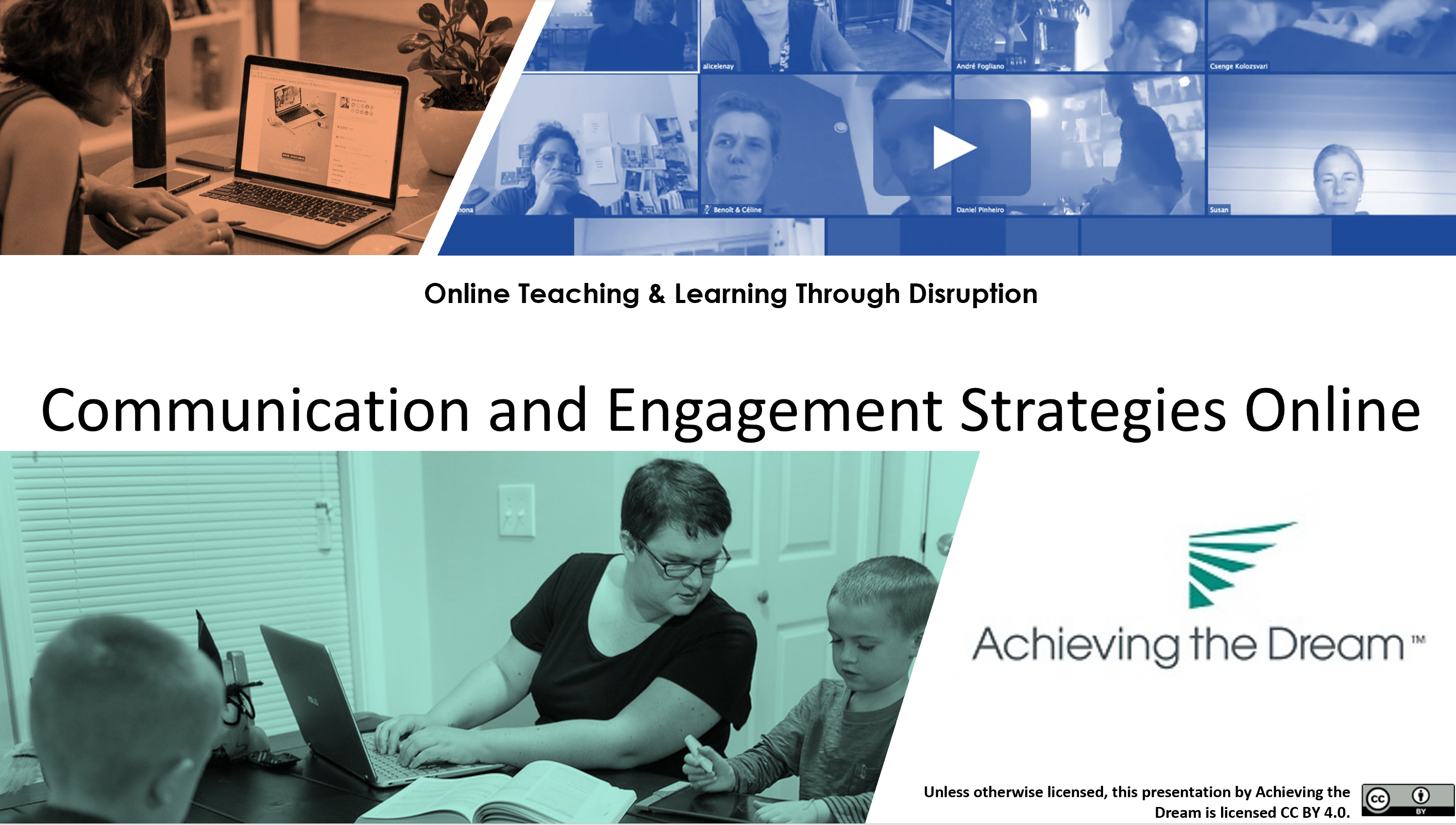
A webinar focused on supporting faculty, staff, and students during the closure of community college campuses across the United States during the Covid -19 pandemic.
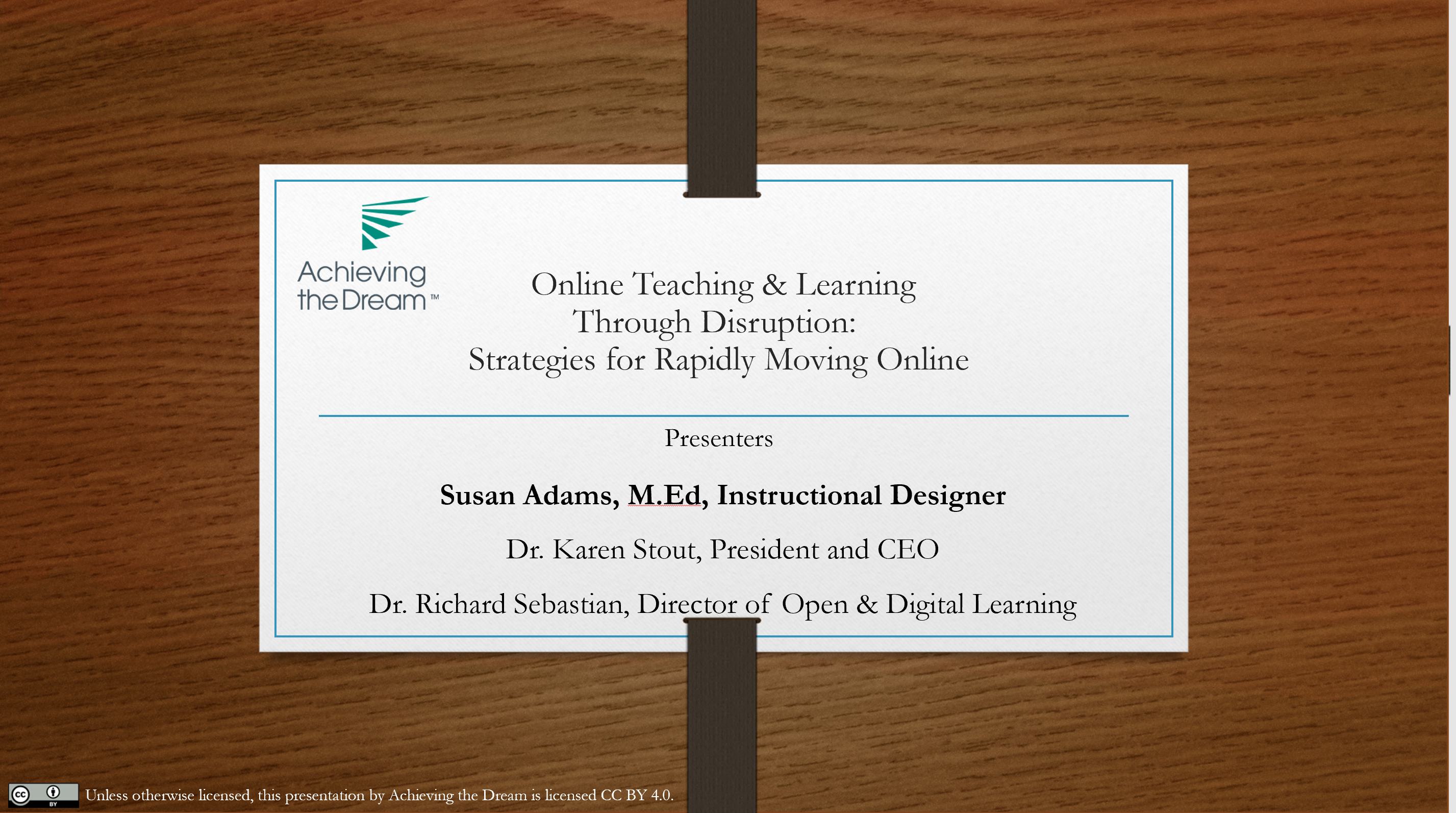
A webinar focused on supporting faculty, staff, and students during the closure of community college campuses across the United States during the Covid -19 pandemic.

This resource provides an introduction to the processes, challenges, and considerations involved in running impact studies in postsecondary institutions.
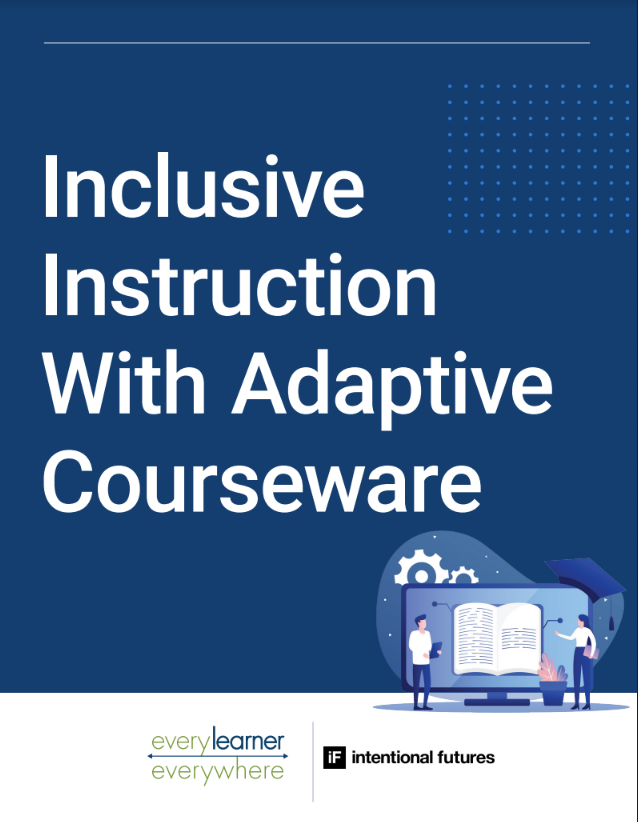
A summary of approaches to developing and evaluating accessible and inclusive courseware
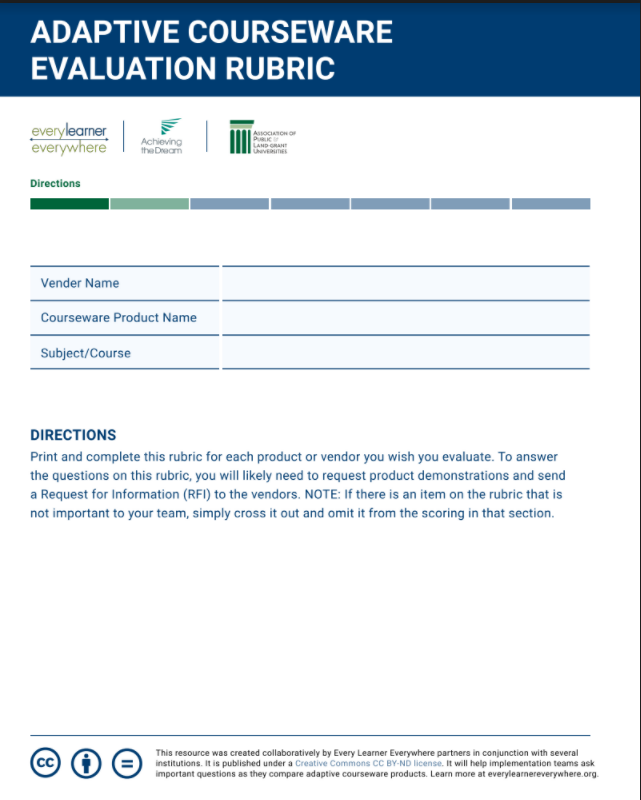
A courseware selection rubric for evaluating courseware products during the adaptive courseware selection process.

This brief provides an overview of the current research on the effectiveness of adaptive courseware broadly and in the discipline of Chemistry.
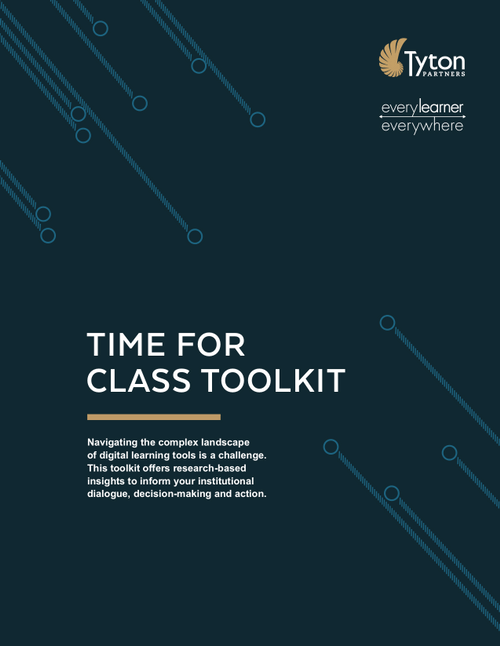
The Time for Class 2019 Toolkit is a set of research-based action briefs and tools designed to support institutional dialogue, decision-making and action.
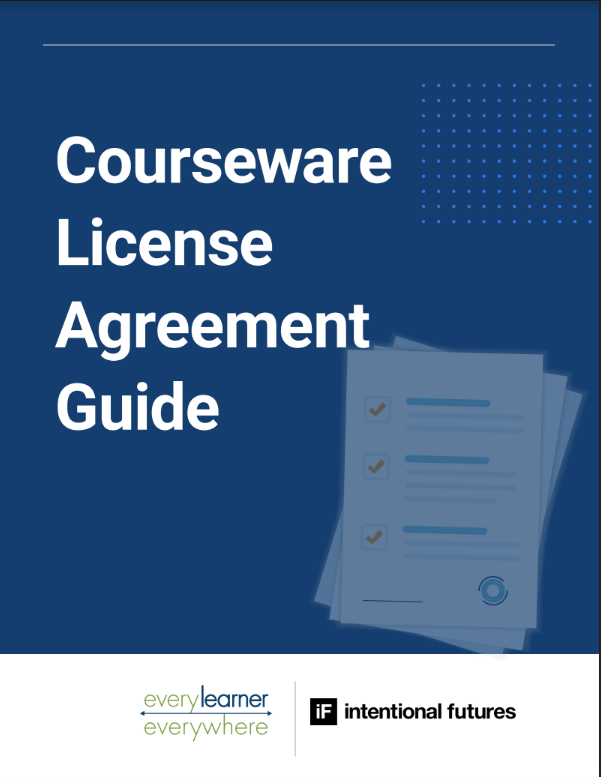
This resource is a set of tools to help you review your adaptive courseware license agreement.














































































